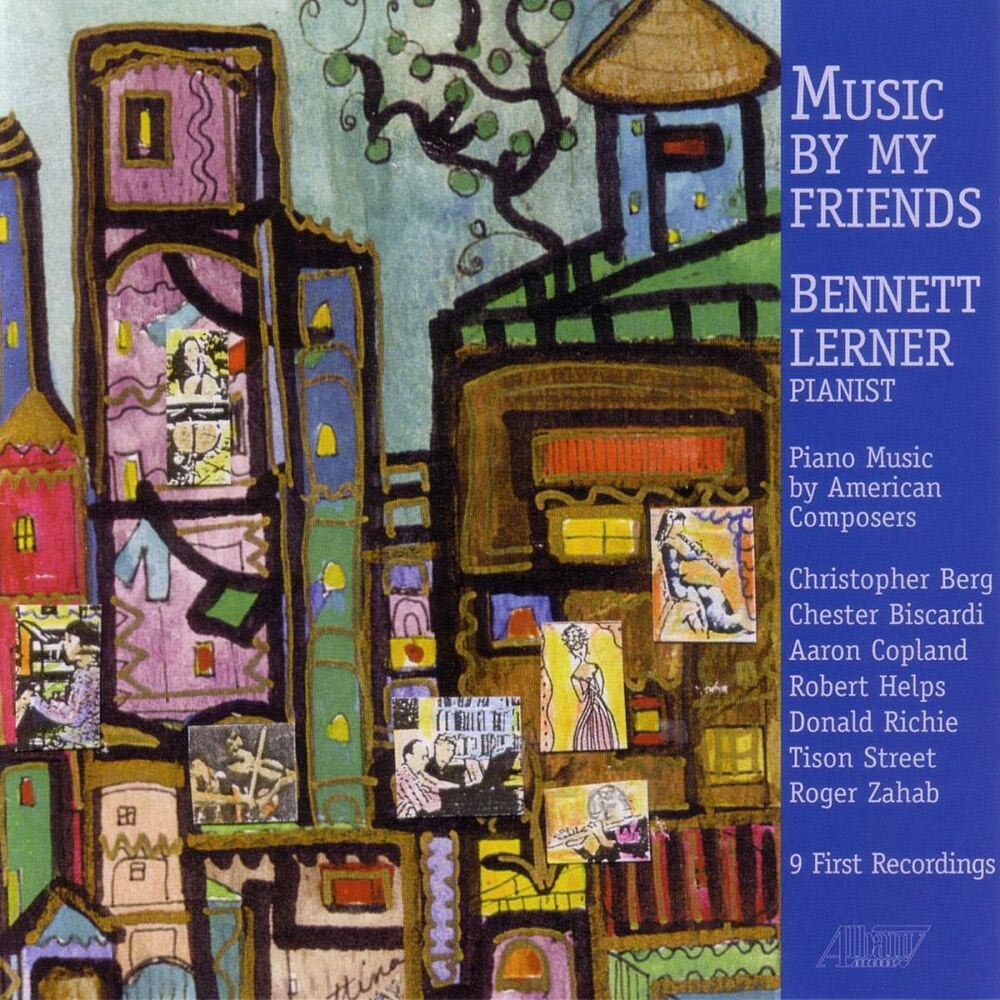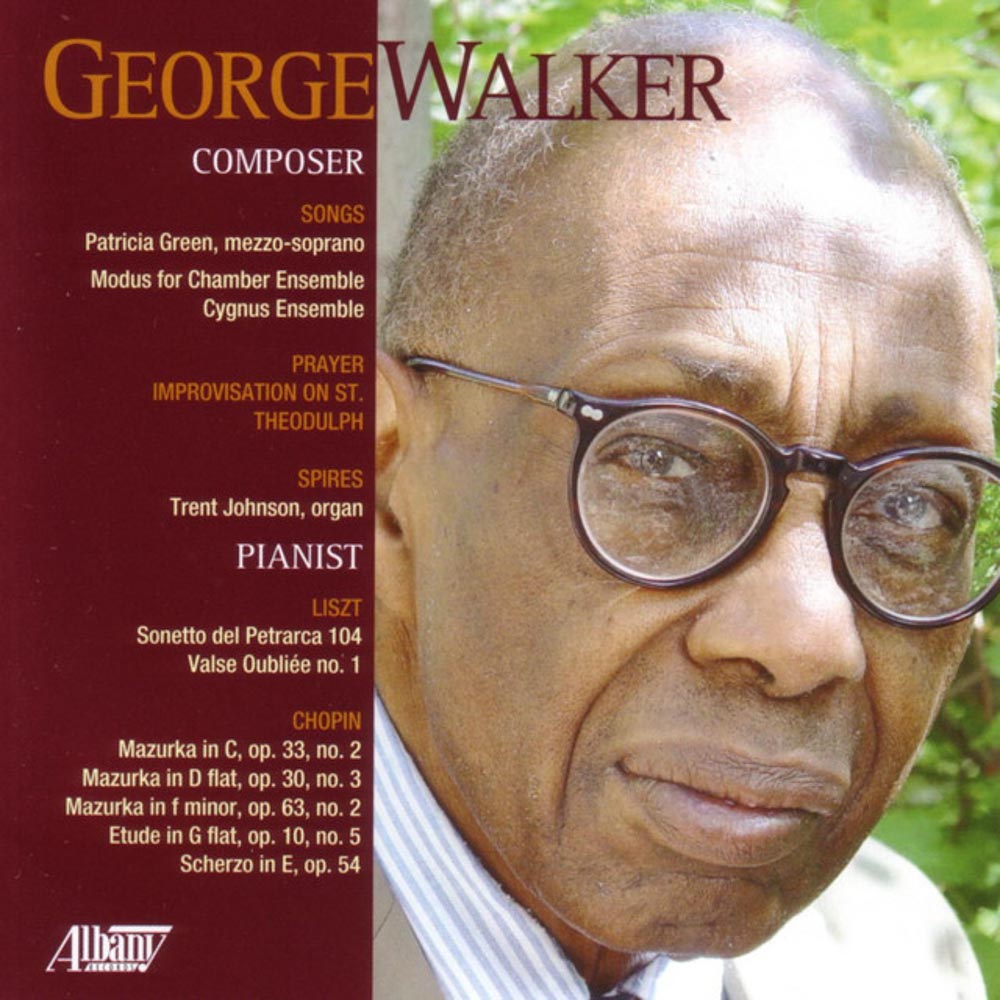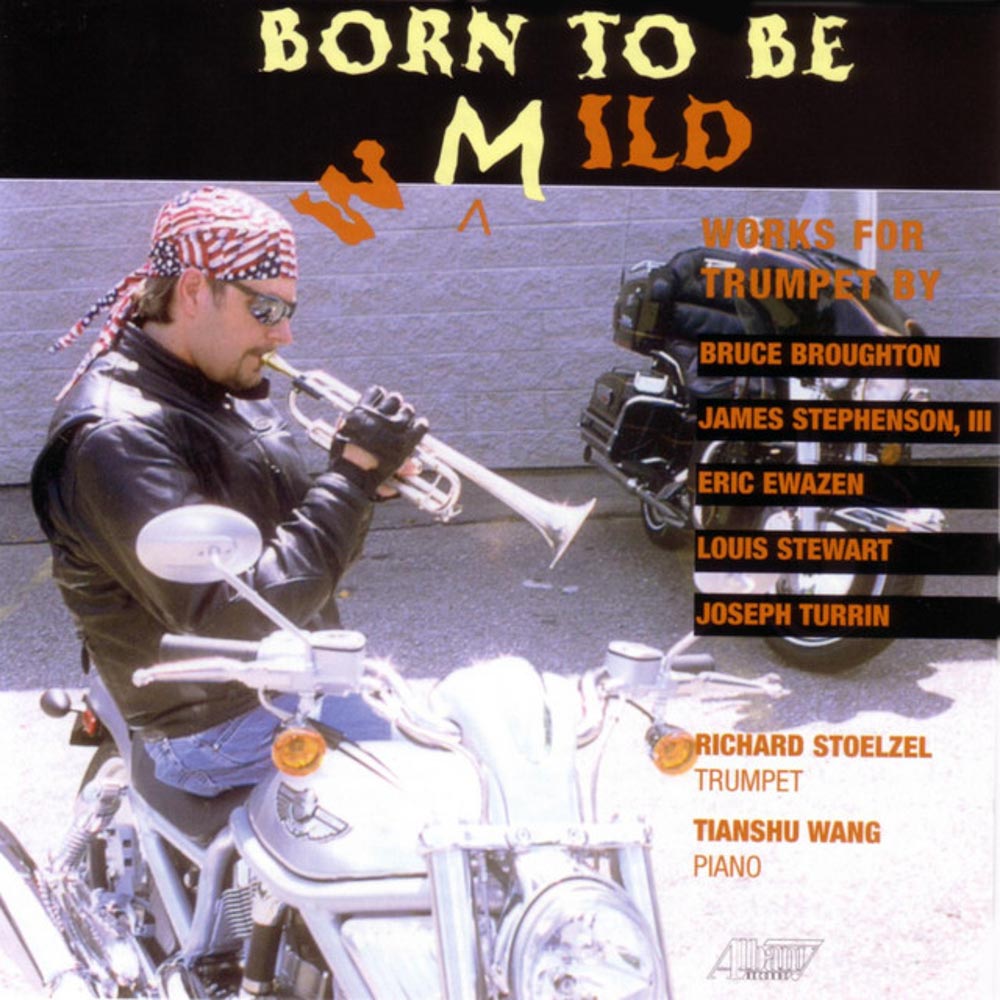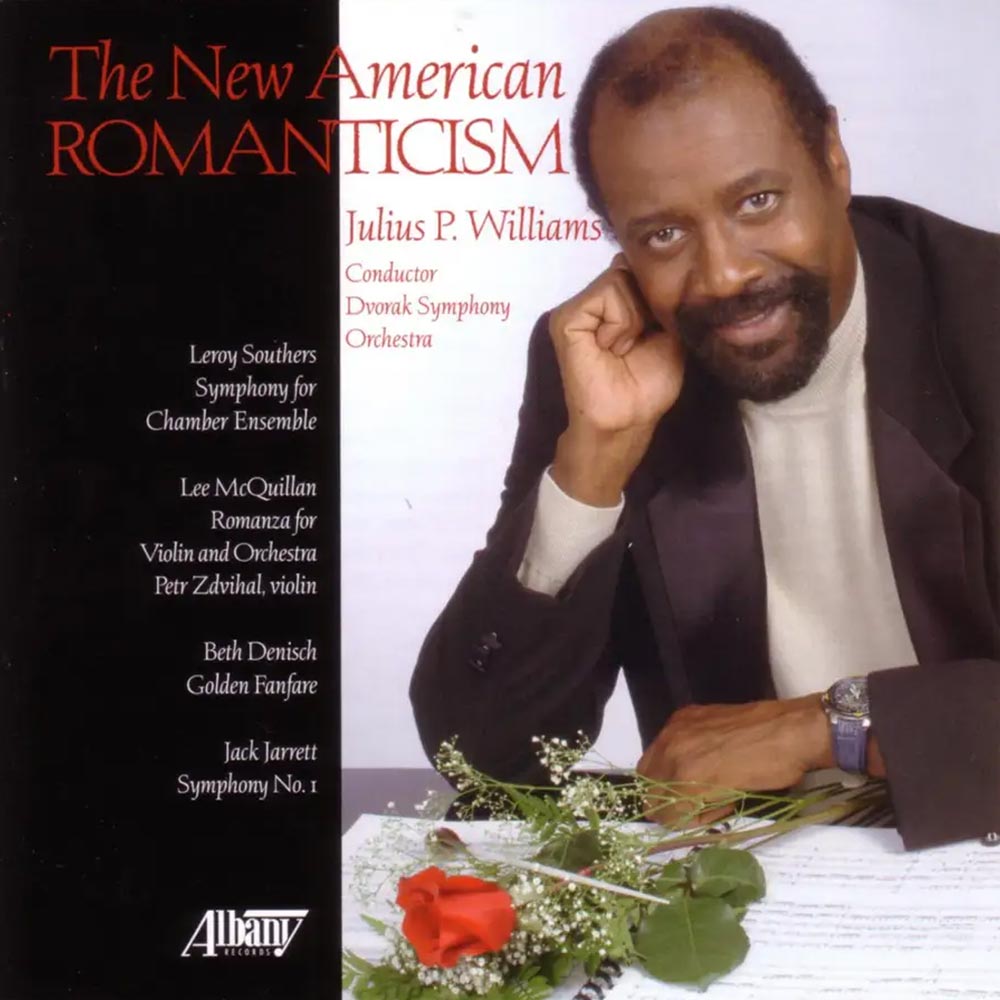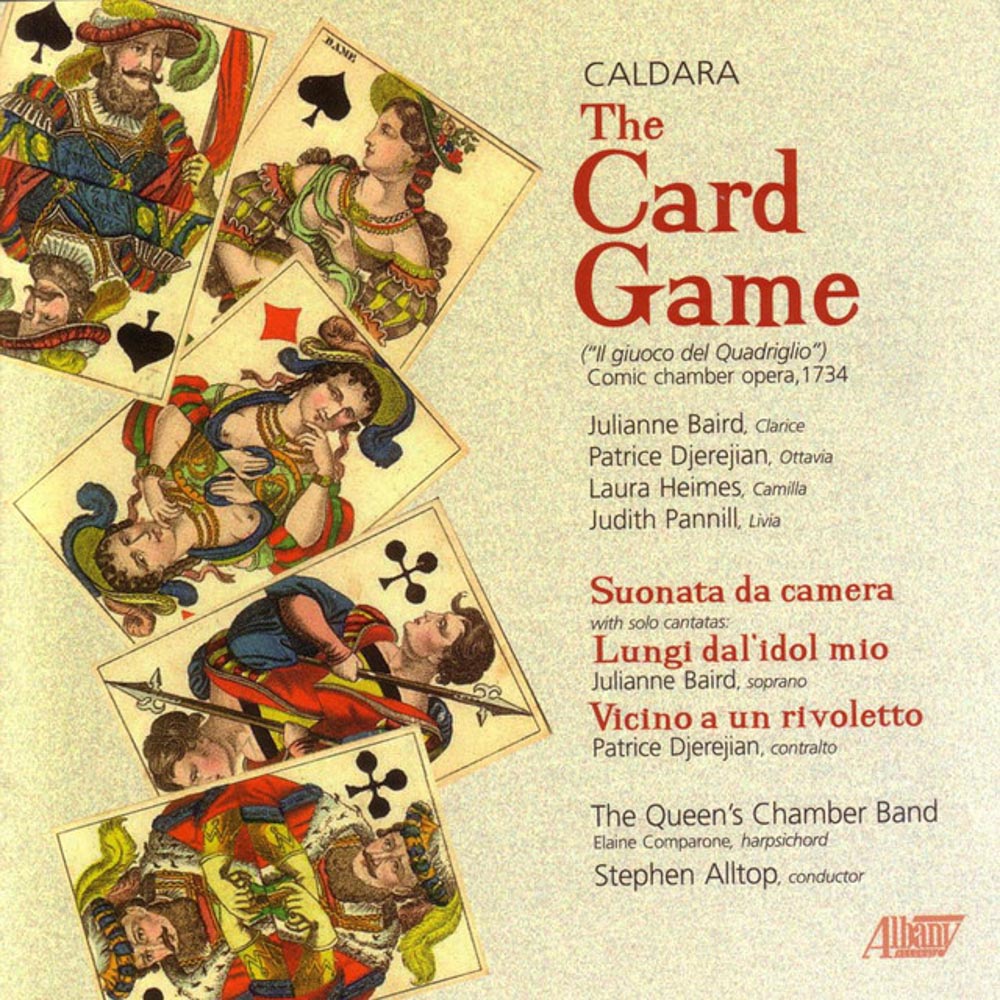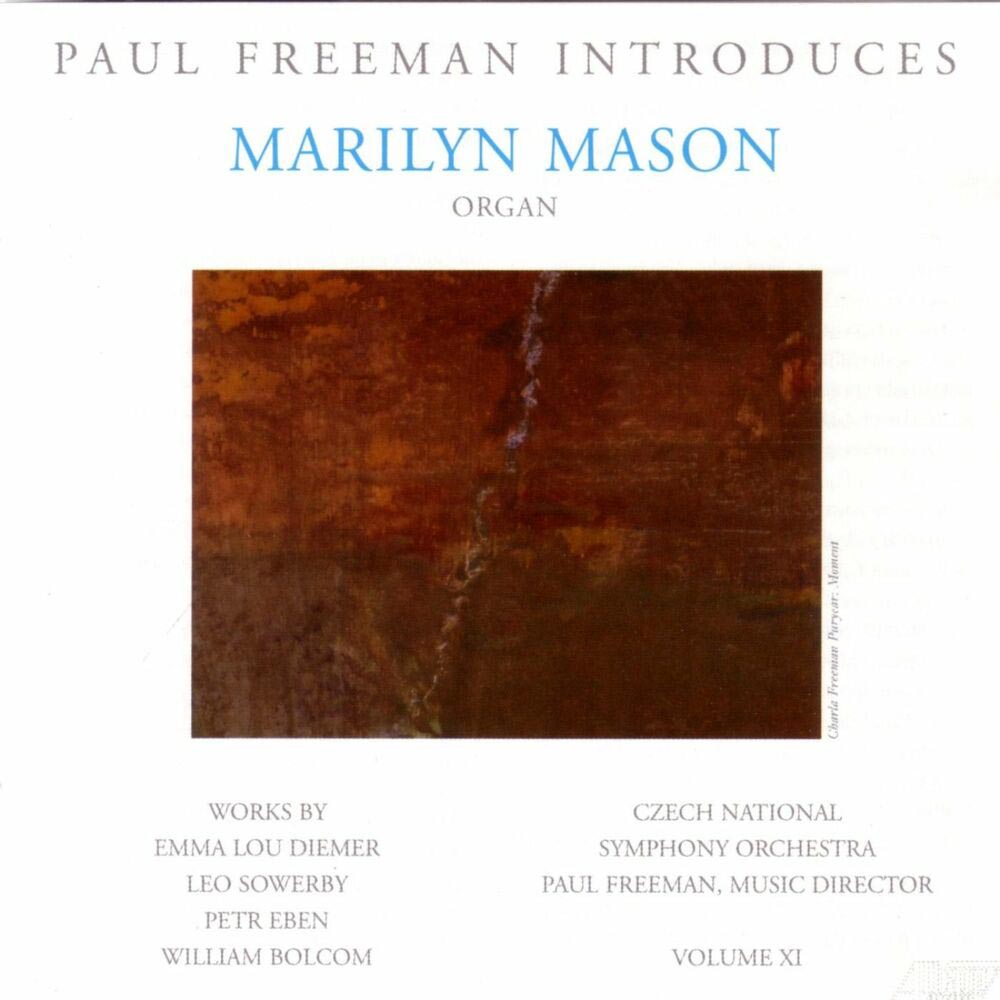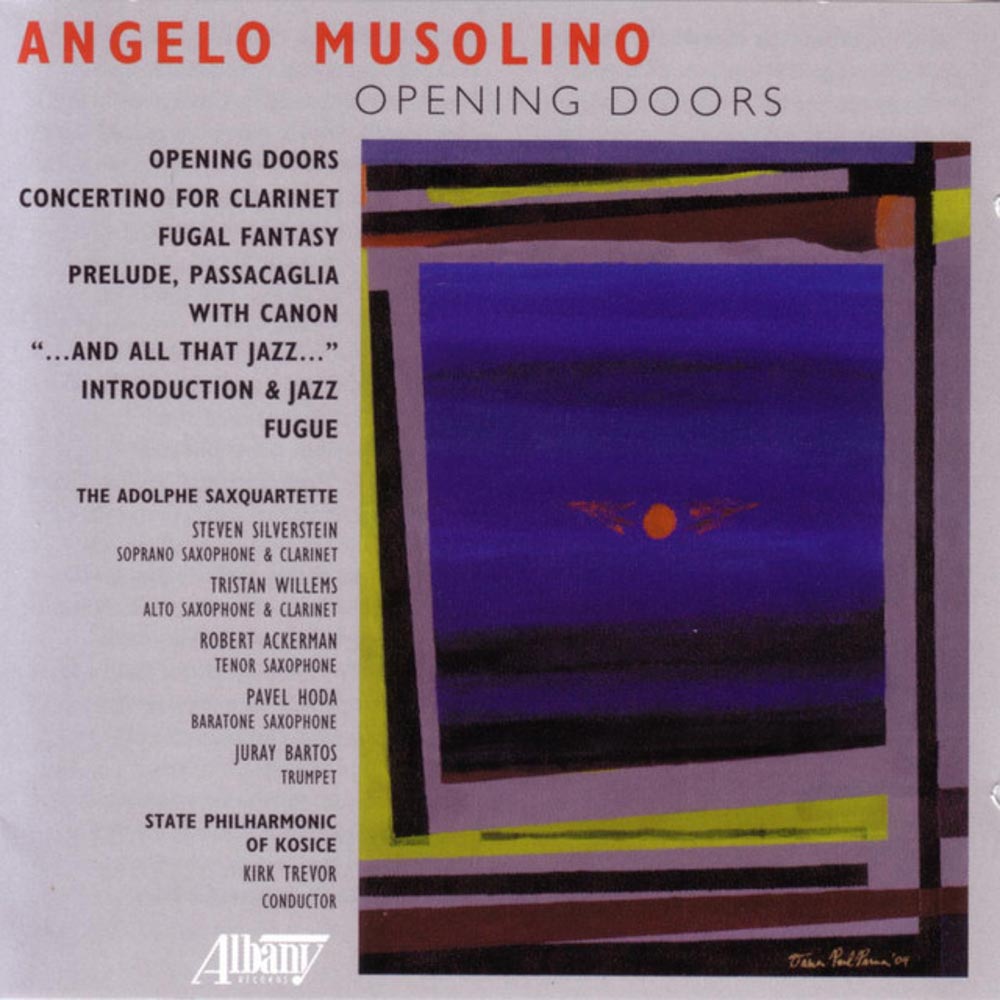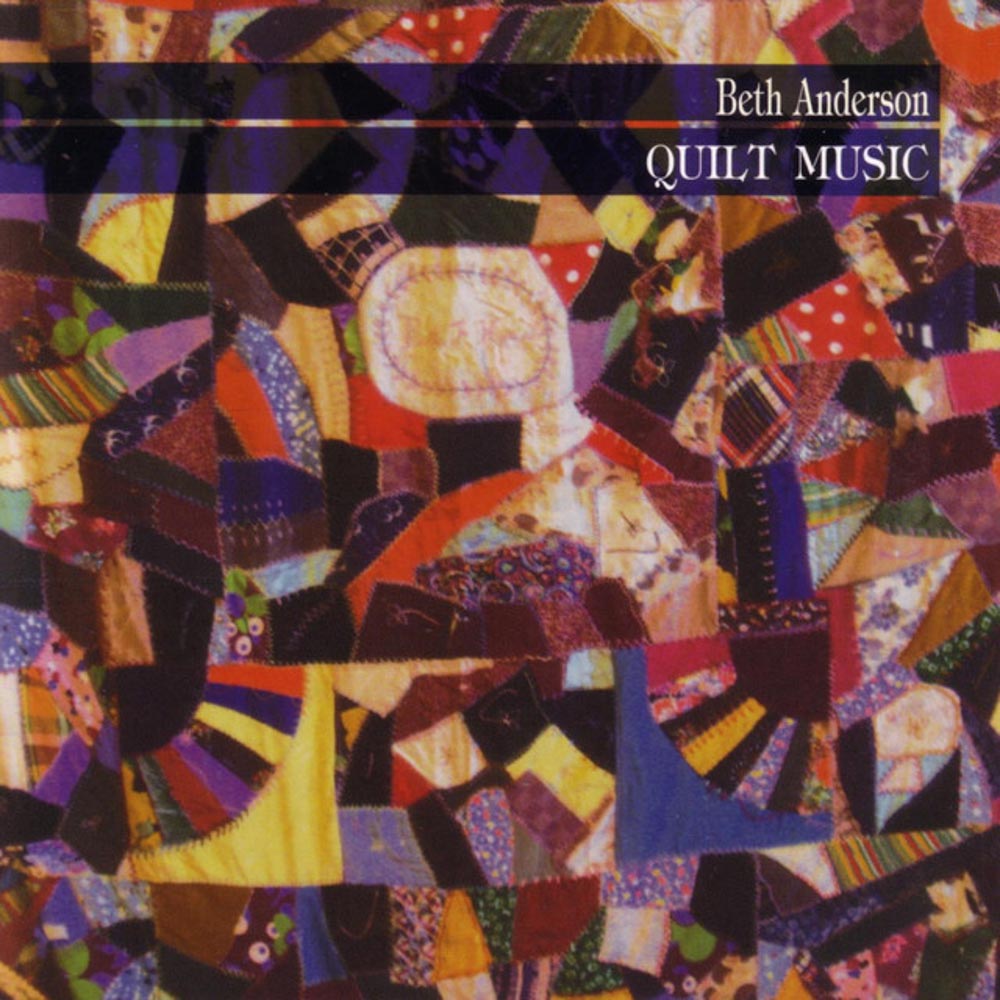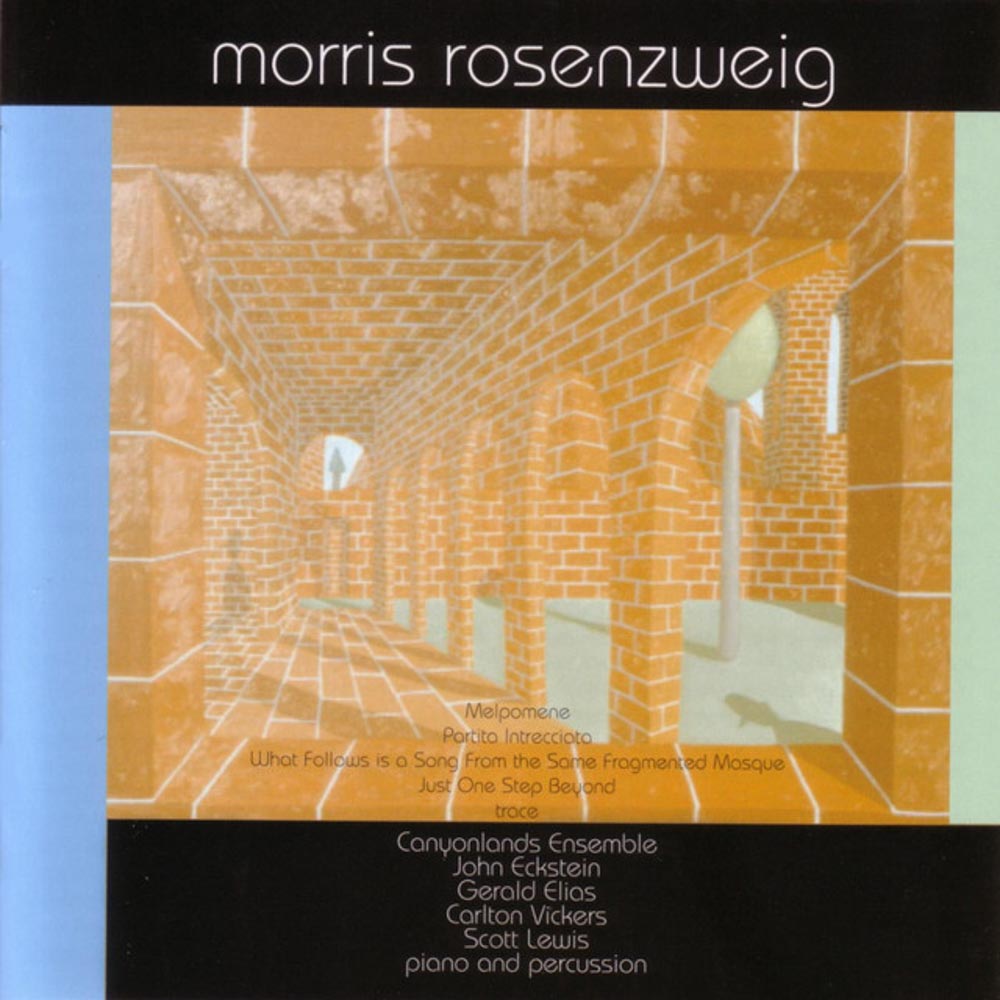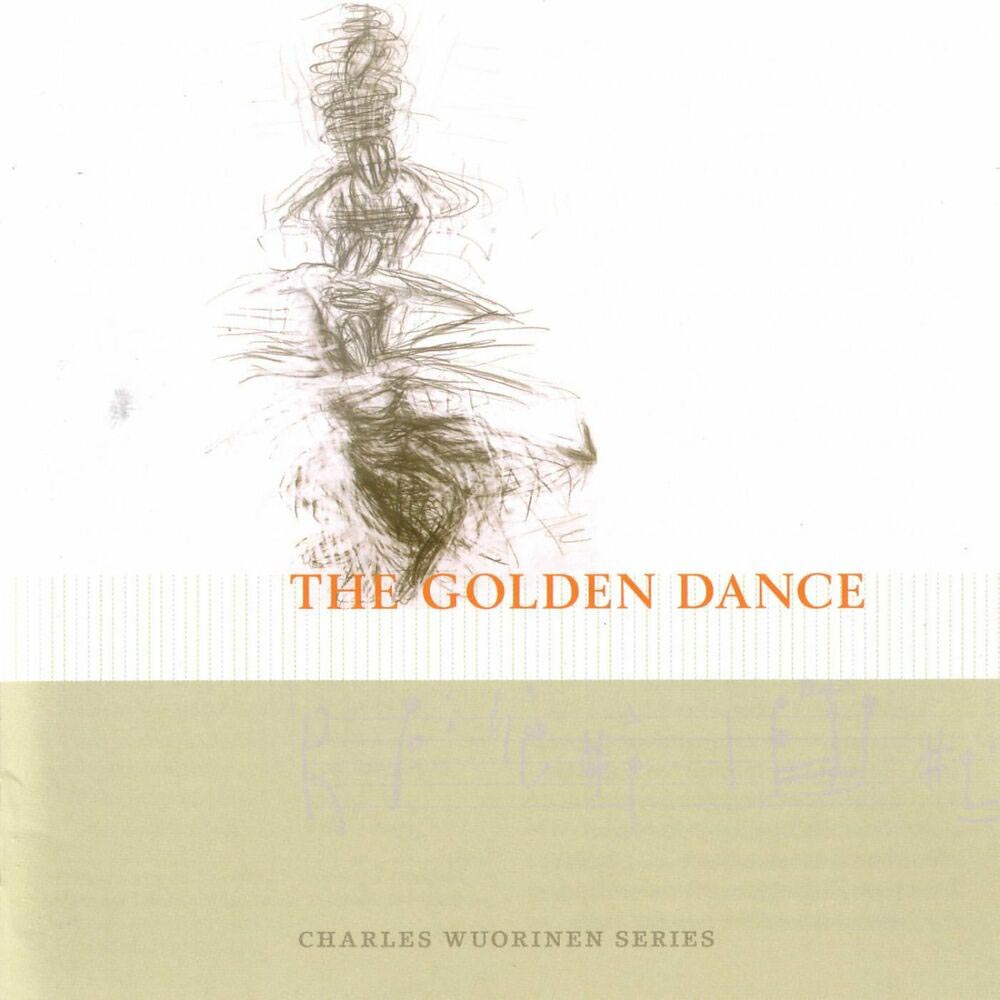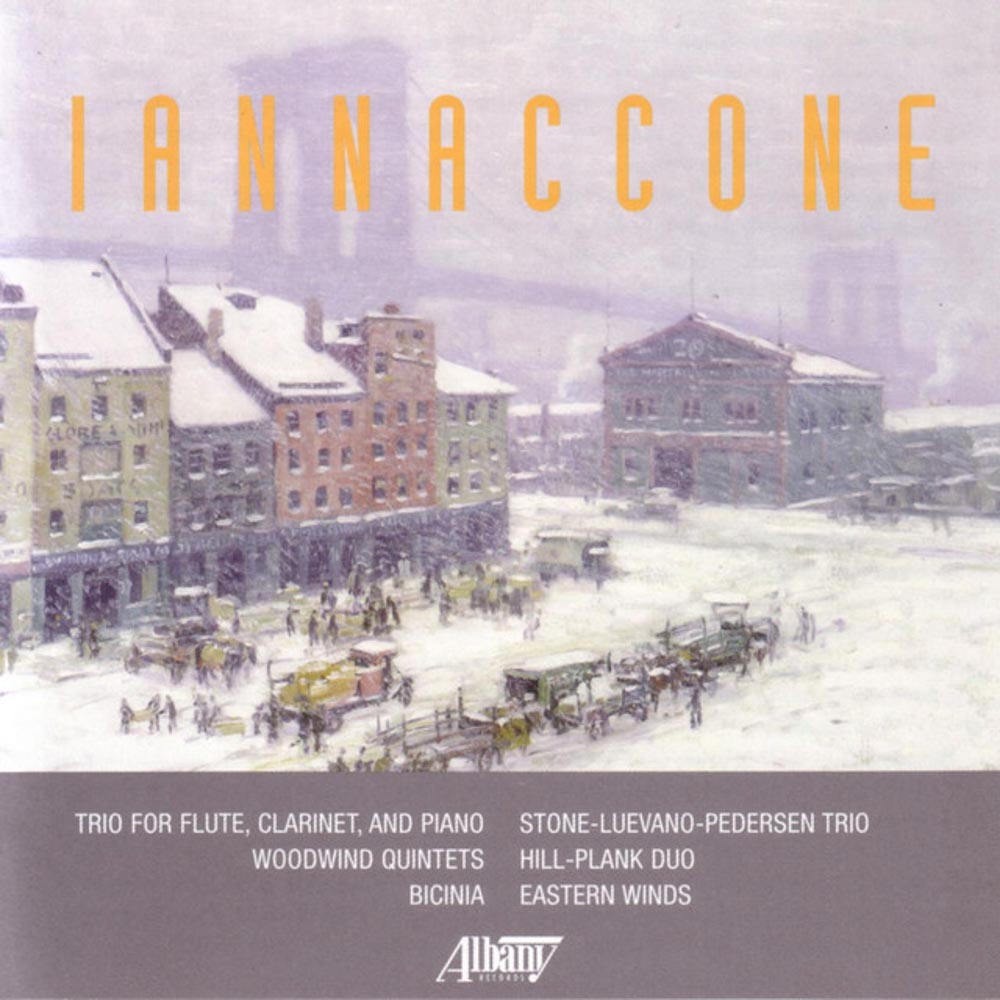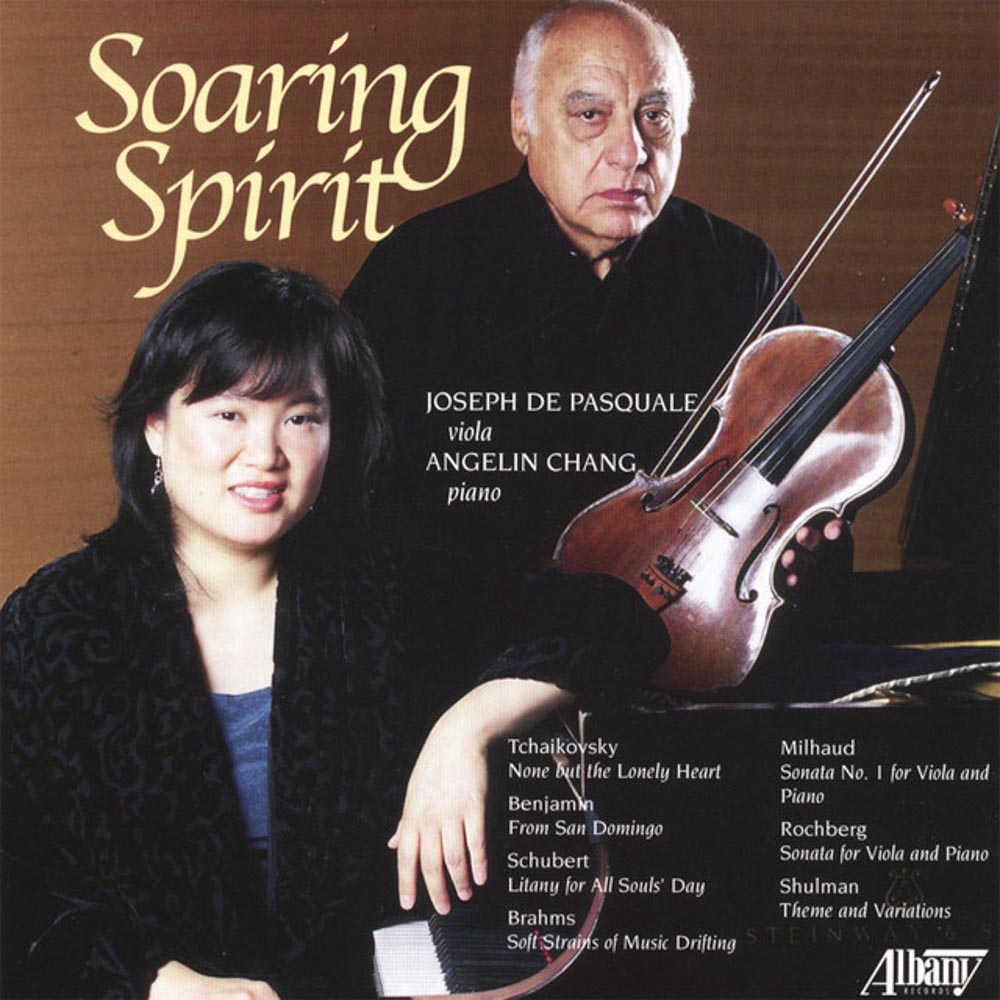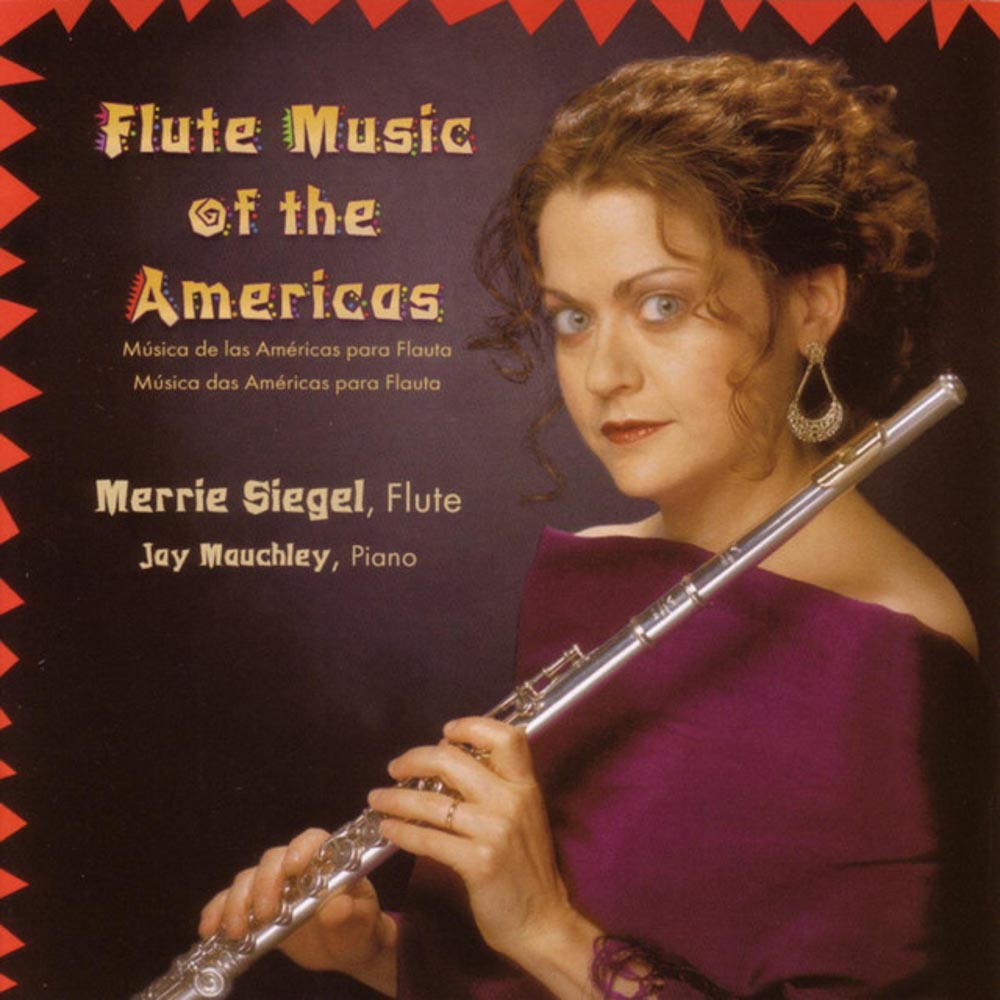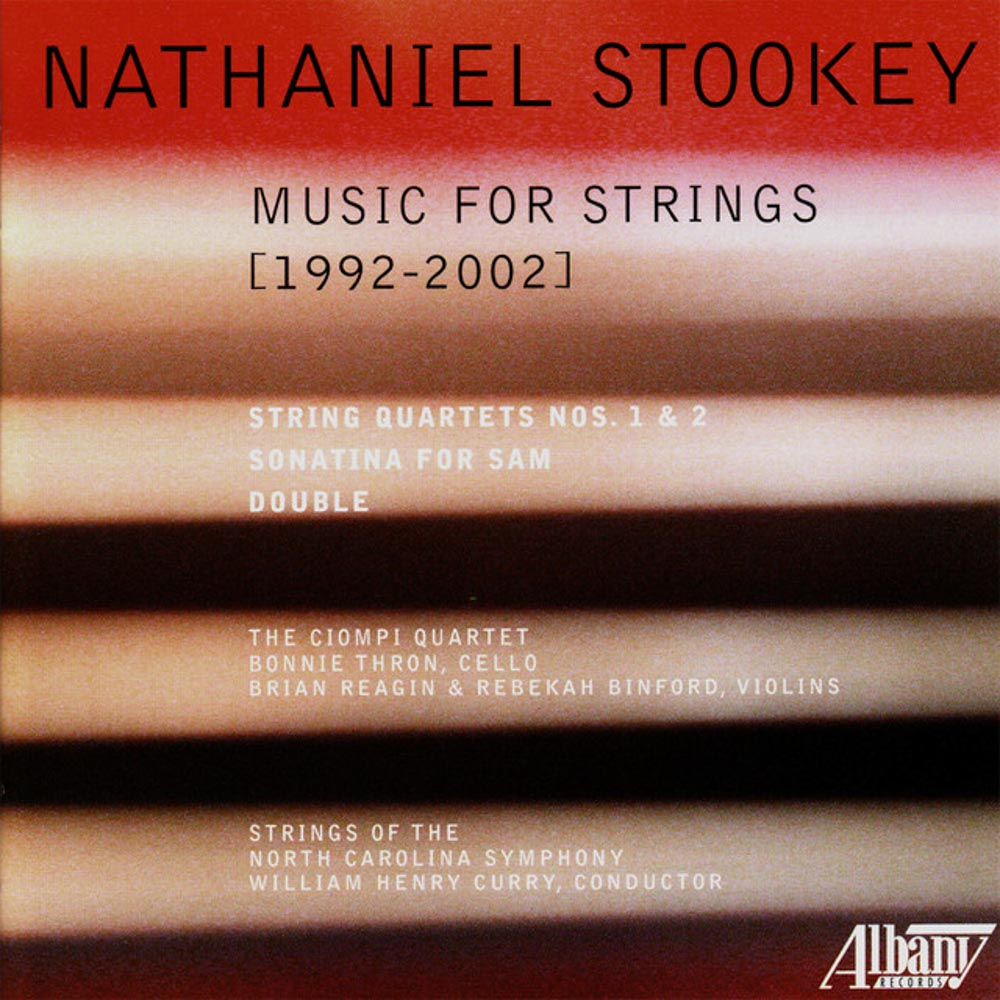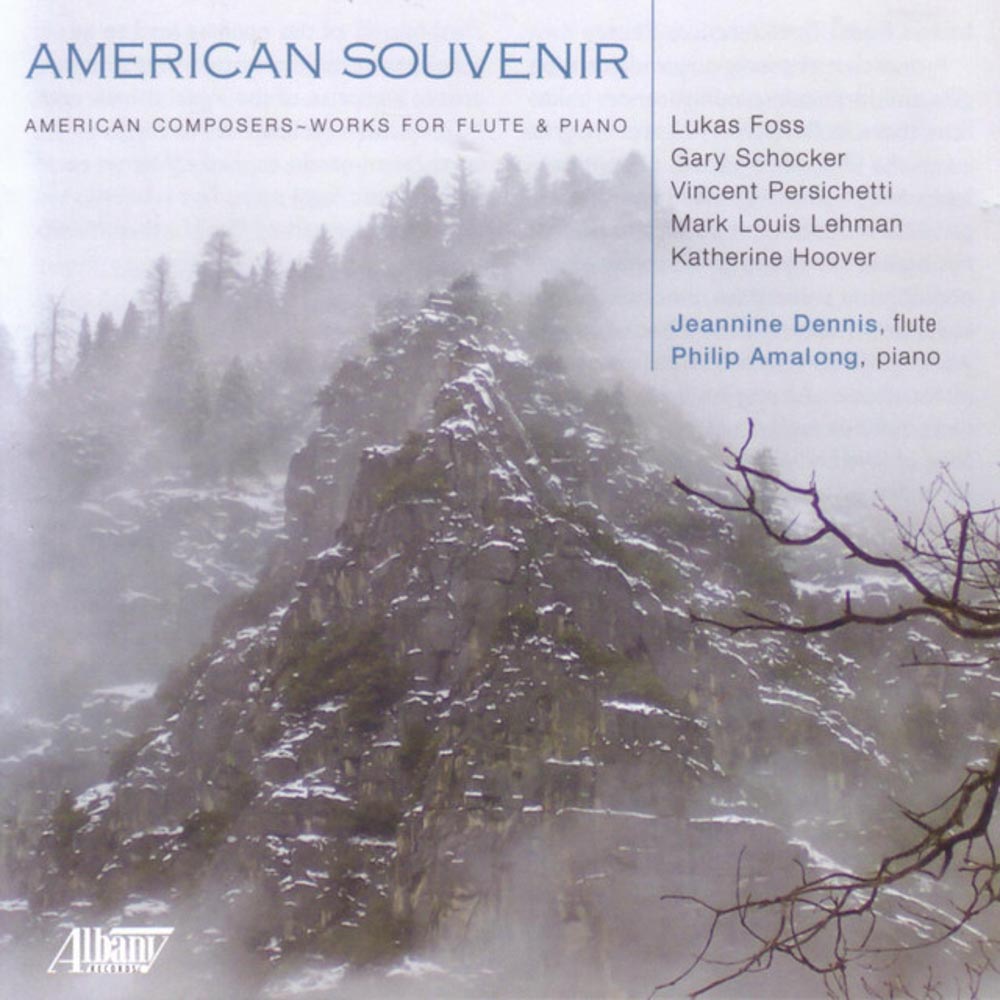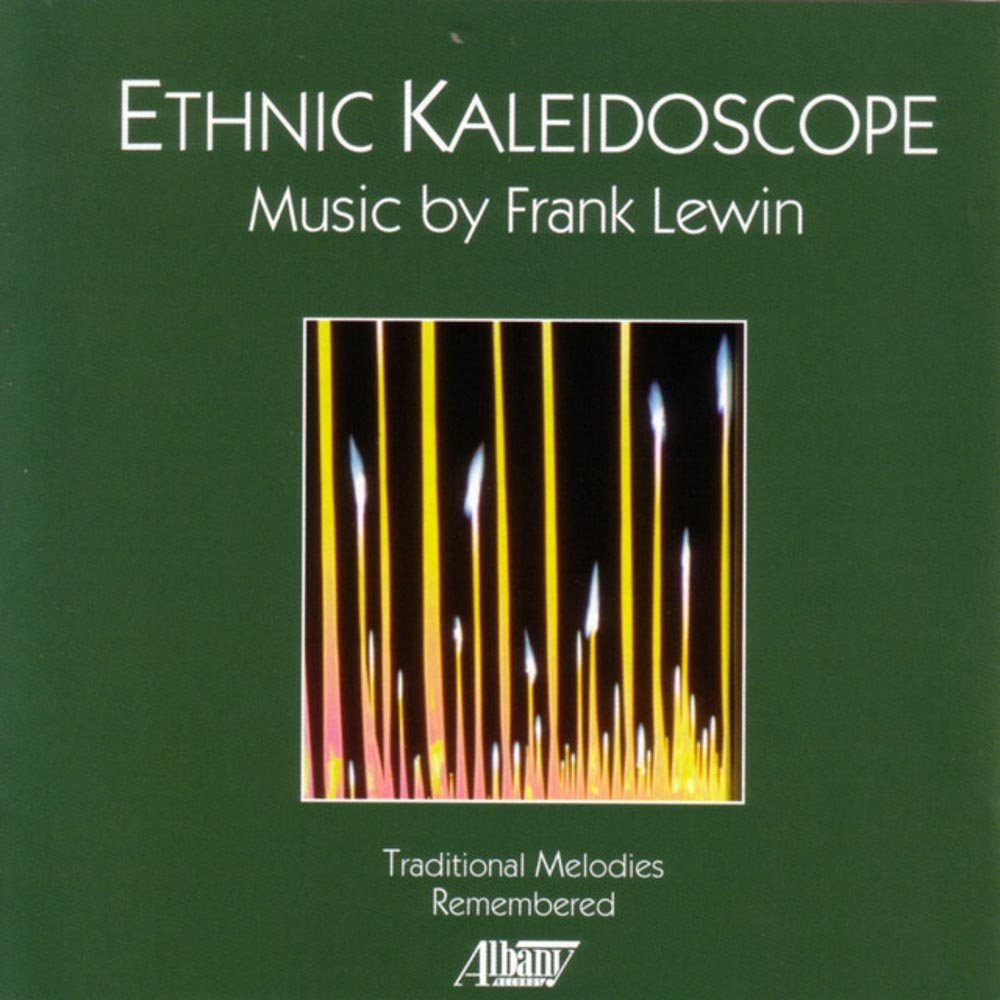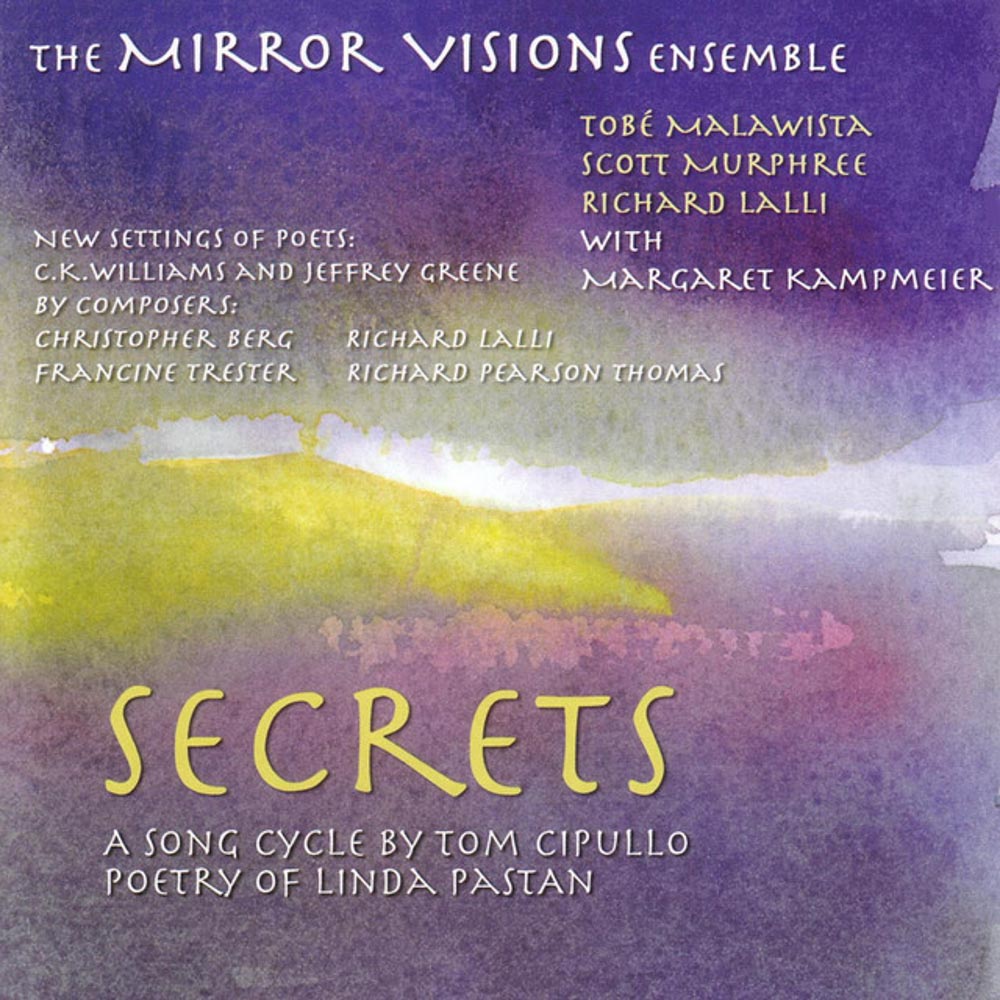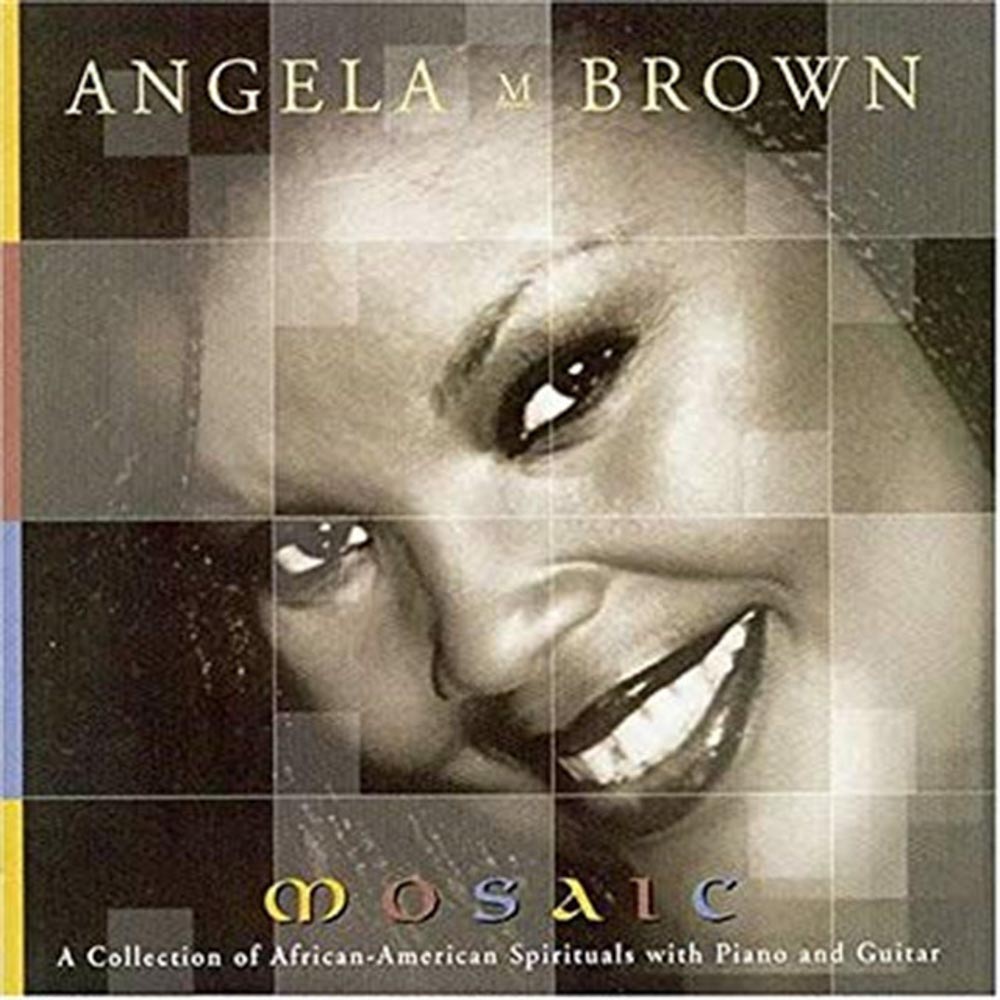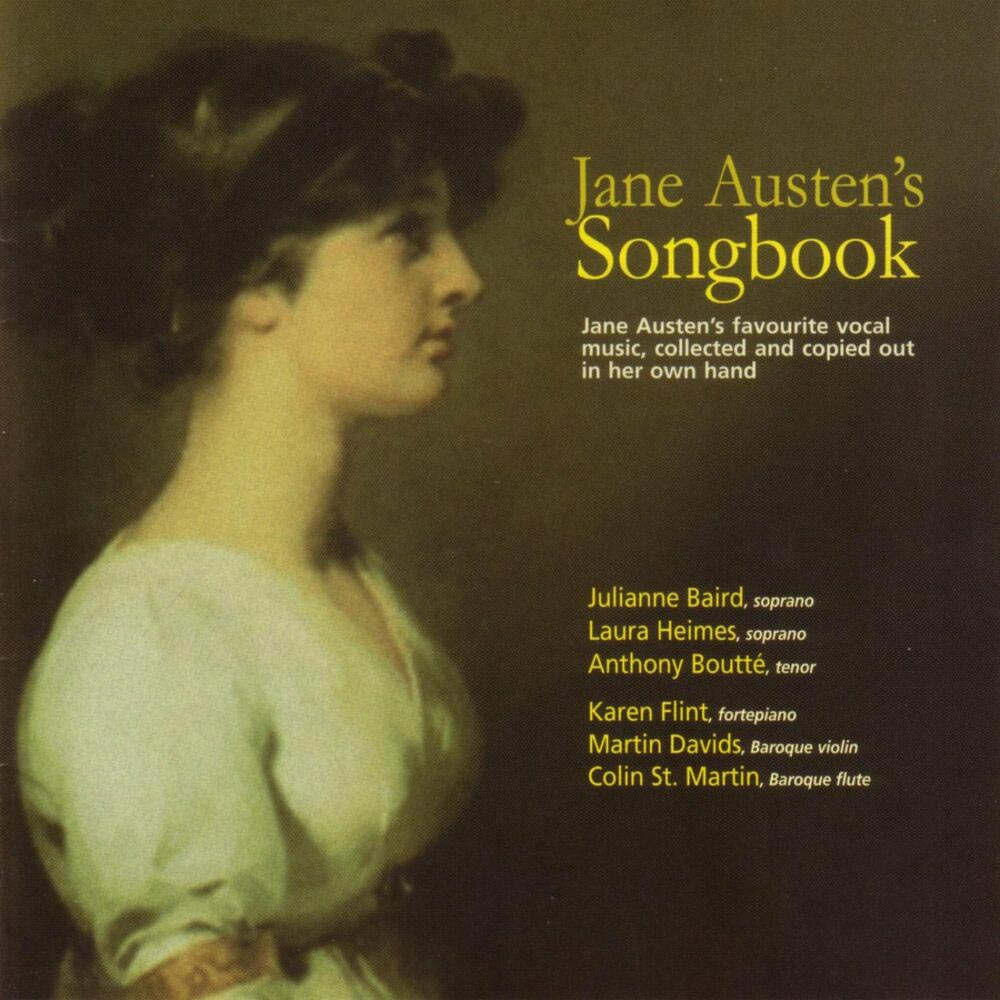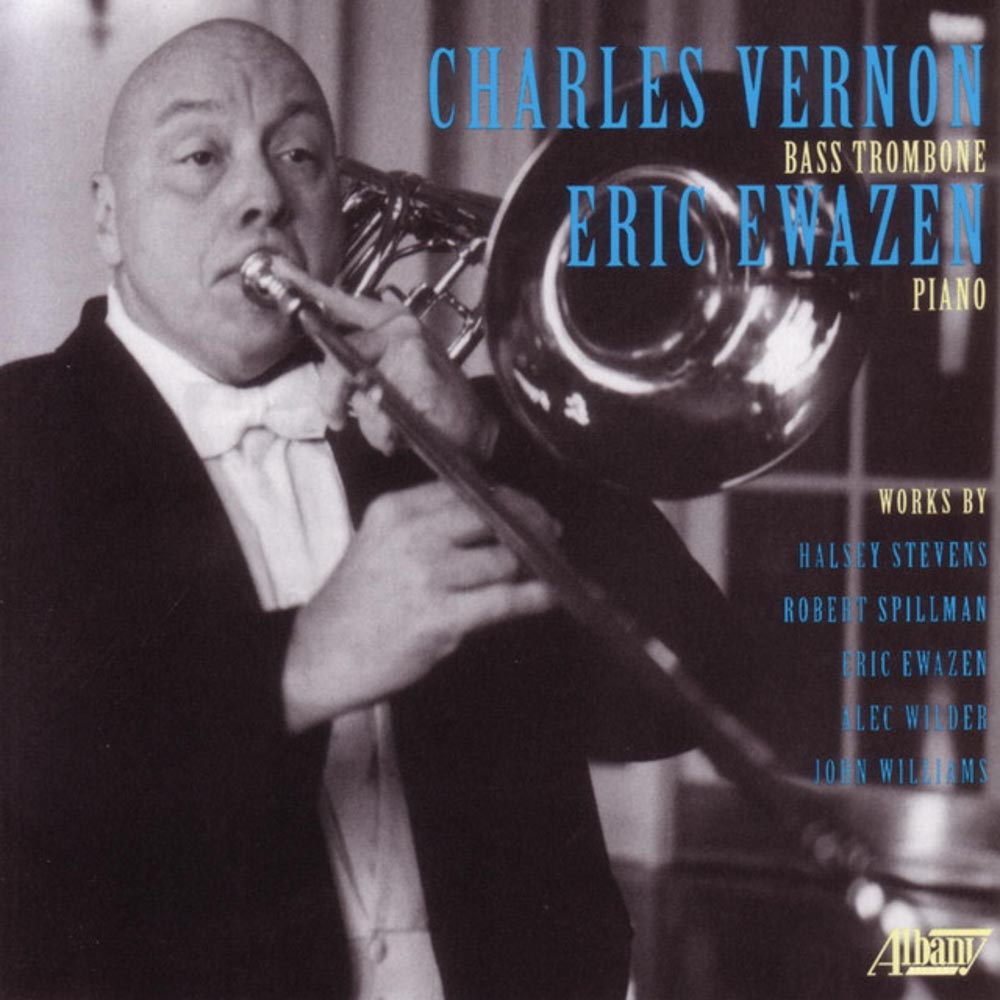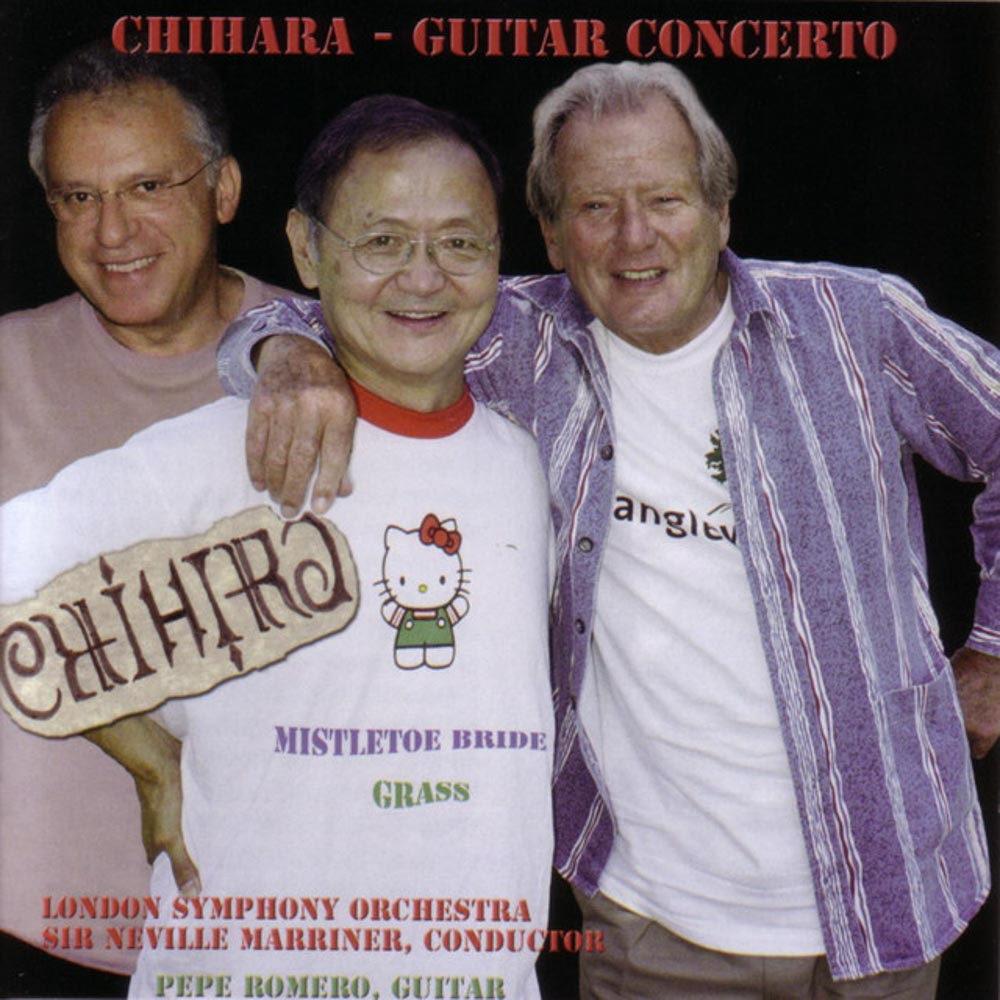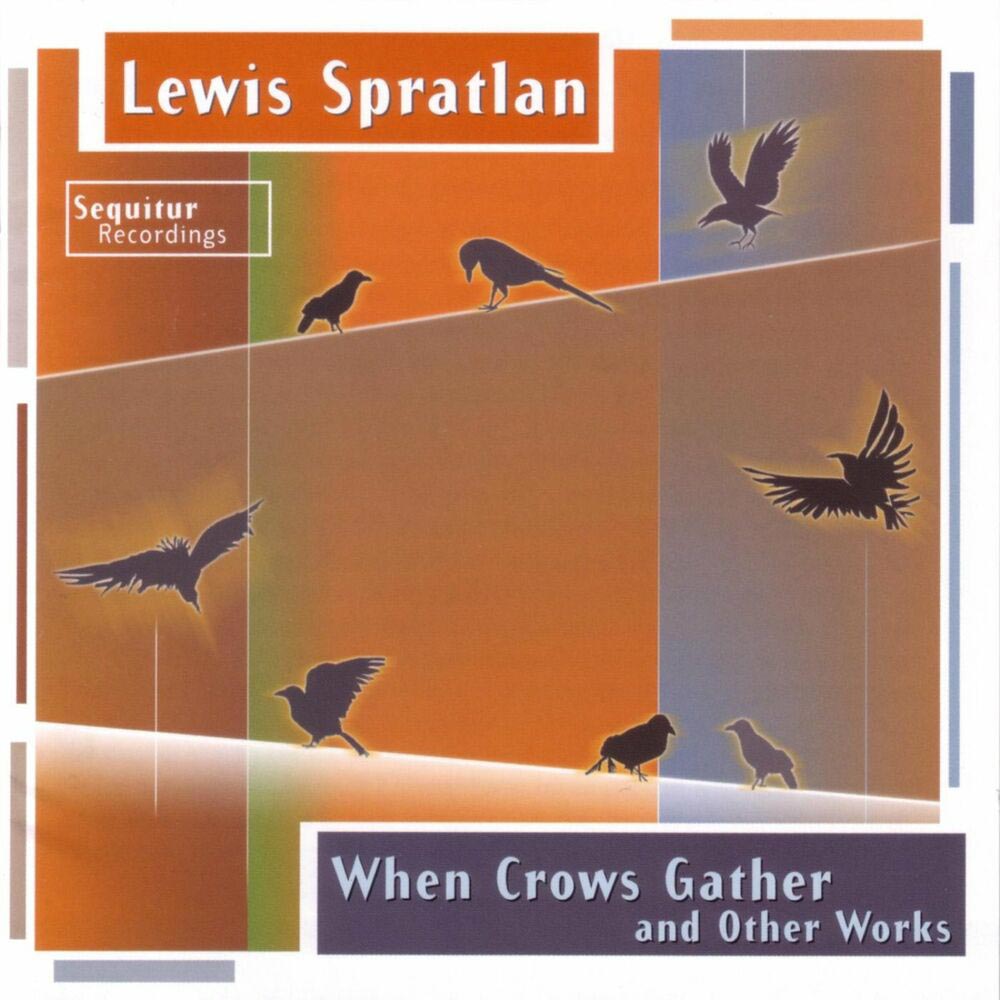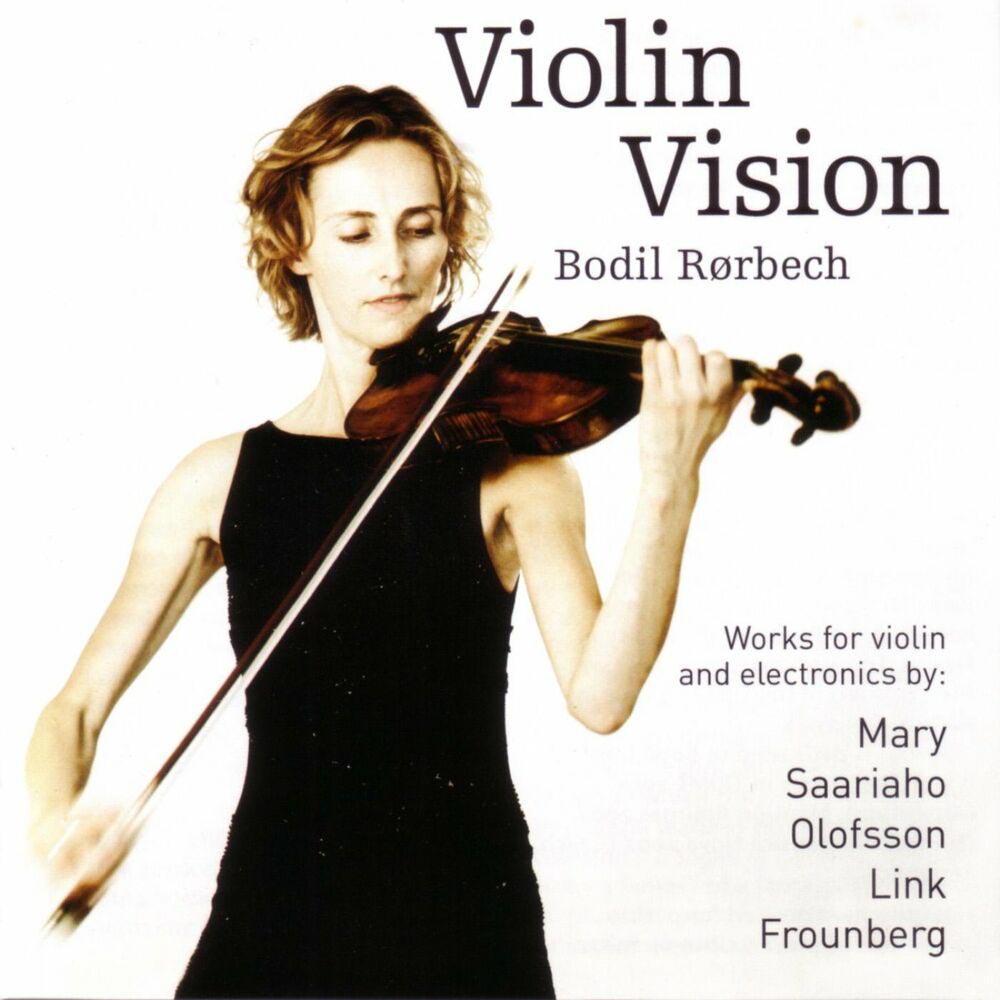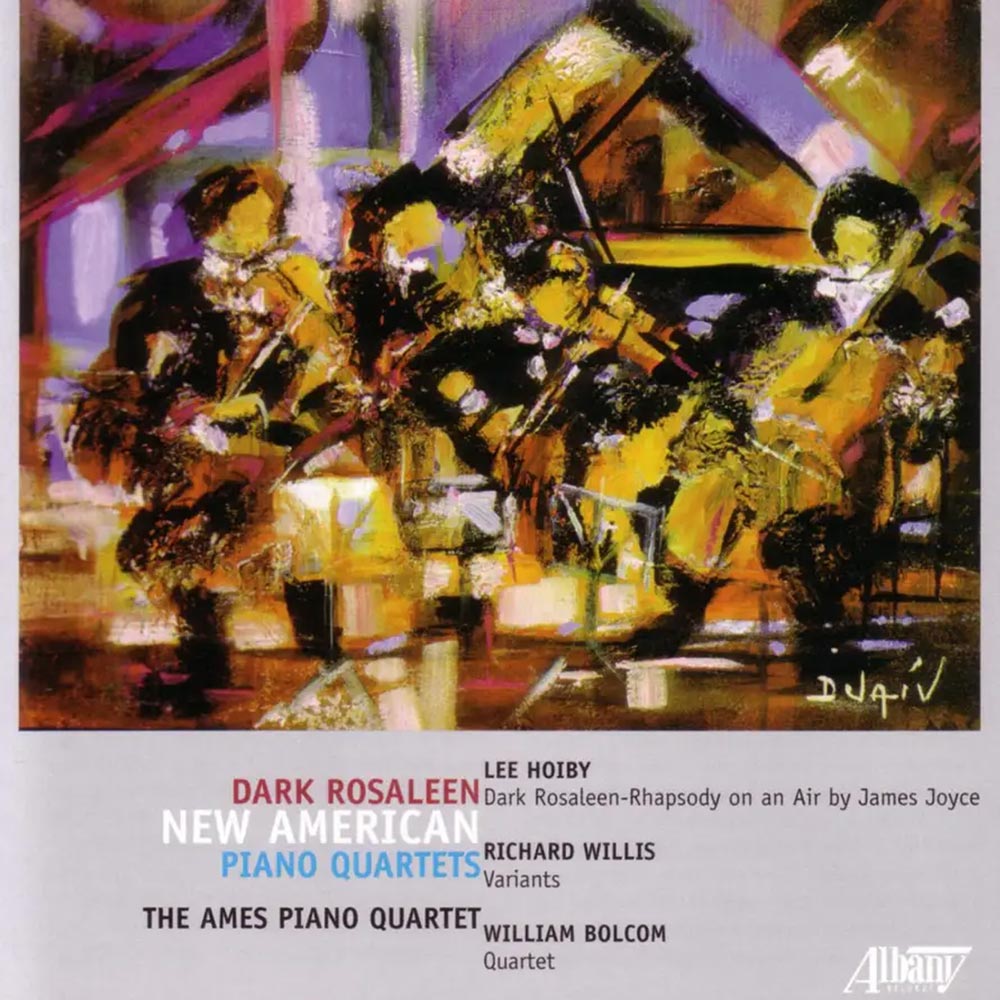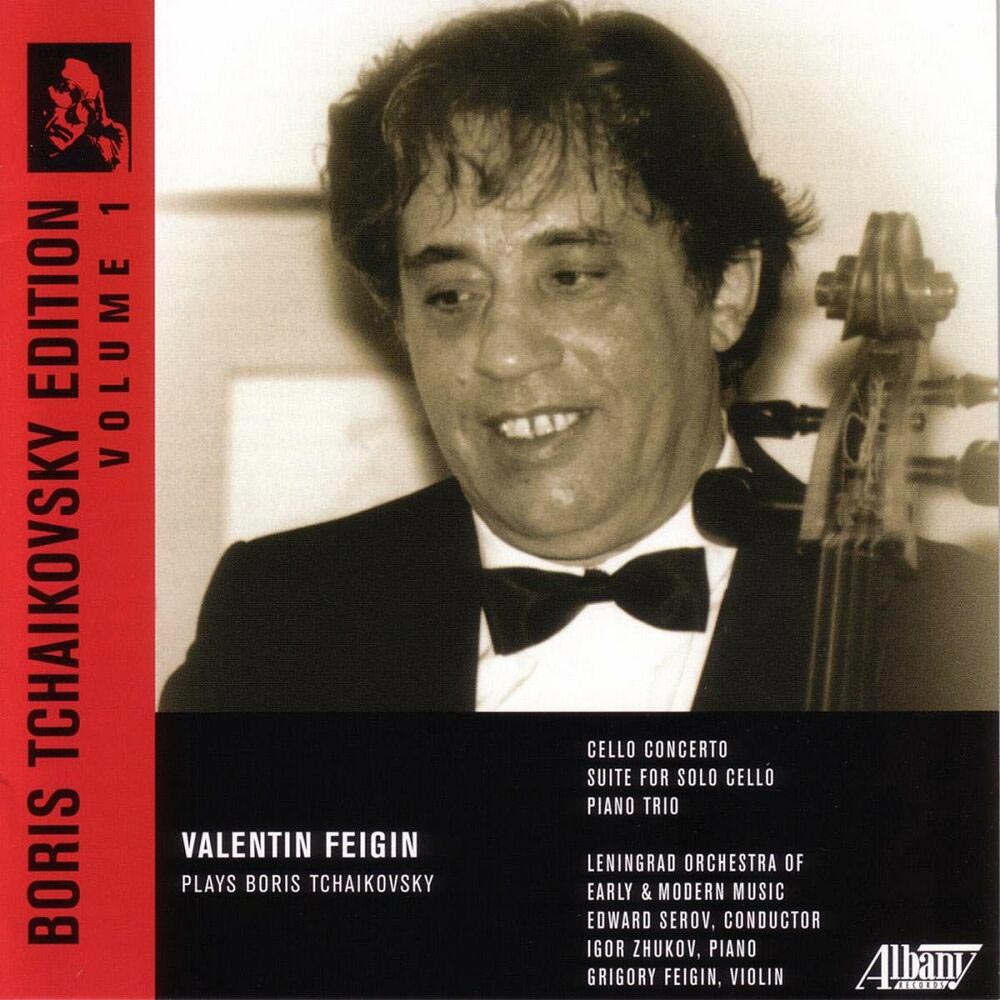Catalog #: TROY0695-96
Release Date: October 1, 2004InstrumentalBennett Lerner was born in Boston in 1944 and currently lives in Chiang Mai, Thailand. He is a well-known performer of contemporary music and has premiered many pieces by major composers. In 1985, he performed the Copland Piano Concerto with Zubin Mehta and the New York Philharmonic in honor of the composer's 85th birthday. The program was broadcast nationally on Live From Lincoln Center. Lerner was Copland's chosen soloist. His primary teachers were Claudio Arrau and Robert Helps, among others. Lerner received his Doctor of Musical Arts degree from City University of New York in October, 2001, in piano performance and music history. Mr. Lerner writes: "Throughout my career I have had many close friends who were composers. Many of them wrote pieces for me, some of which I played in their world premiere performances, some of which I played many times, some of which I played only once, and some of which I played for the first time during the world tour of MUSIC BY MY FRIENDS in September-November, 2003. This recording is made up in large part of those pieces. In addition, it includes other works by my composer-friends." Comments from composers include Roger Zahab: "Your recordings are truly wonderful! I feel that you have done a magnificent thing for all of us. I wouldn't change a thing."; Tison Street: "The performances are absolutely stellar...Your performance of my Poem is just the best!..."; Donald Richie: "Your recording of your friends' music is your finest yet, and the relaxed beauty you bring to my little pieces is wonderful...."
Catalog #: TROY0697
Release Date: February 1, 2005ChamberThe songs for voice and piano by George Walker are among the finest written by an American composer and are "as outstanding as they are varied" according to Fanfare Magazine. Modus for Chamber Ensemble was commissioned by the Cygnus Ensemble. It received its premiere in New York in March, 2001. The four movements are characterized by recurring motives and highly rhythmical sections of great intensity. The title, Modus, refers to the elegant techniques used to transform and unify the movements. The Prayer for Organ was composed in 1996, 50 years after Walker's famous Lyric for Strings, a memorial to his grandmother, was written. The similarity between these two works lies in the use of contrapuntal techniques. The Improvisation on St. Theodulph is a fantasia on the melody stated before the work begins. The Prayer and the Improvisation were commissioned by the regional chapter of the American Guild of Organists in Washington, D.C. Spires was commissioned for performance by Dr. Mickey Thomas Terry at the Convention in Denver of the National Chapter of the American Guild of Organists in 1998.
Catalog #: TROY0698
Release Date: November 1, 2004ChamberJeffrey Mumford was born in Washington, D.C. and has been conspicuously active in that city's musical life. His music has been performed throughout the United States and abroad and the present CD was preceded by one on the CRI label, similarly devoted to his chamber music. Honors, awards, fellowships and commissions have come to him from many prestigious sources. Following a year as composer-in-residence at Bowling Green State University's College of Musical Arts, Mumford joined the faculty of the Oberlin College Conservatory of Music in the fall of 2000. Two of Mumford's orchestral works - the celebratory fanfare Within a cloudburst of echoing brightness (1995) and Amid the light of quickening memory (2003) were commissioned and introduced by the National Symphony Orchestra under Leonard Slatkin. These titles are characteristic for Mumford. He has shunned traditional sonatas and symphonies in favor of music that tends to define its own shape and substance, and his titles allude to the impressions or moods behind the creative impulse. References to light, radiance and resonance are as abundant in his titles as references to angels in the works of Einojuhani Rautavaara and Augusta Read Thomas. Mumford has stated that his music in general is "inspired by cloud imagery, light and the unique aspects of the energy that characterize the various times of day." While his works are generated from such impressions, they are not tone poems in the conventional sense of "painting pictures" or delineating action, and listeners would be well advised to avoid seeking or expecting specific images in them.
Catalog #: TROY0699
Release Date: October 1, 2004ChamberAlice Shields writes: "I received a doctor of Musical Arts in composition from Columbia University, studying with Vladimir Ussachevsky and Jack Beeson. I have gratefully absorbed grants from, among others the National Endowment for the Arts, the National Opera Institute and the New York Foundation for the Arts, and have done my time as Associate Director of the Columbia-Princeton Electronic Music Center and Associate Director for Development of the Columbia University Computer Music Center. I've performed South Indian rhythmic recitation in Bharata, Natyam dance-dramas with Indian dancer Swati Bhise and her troupe of dancers and Indian musicians, at venues including Wesleyan University, Juilliard School and the Asia Society. In a former life I also sang operatic roles with the New York City Opera, the Opera Society of Washington, D.C. and the Clarion Opera Society in Italy, among others. I composed Vegetable Karma in Fall, 1999, while artist in residence at the Computer Music Center of the Conservatory of Music at Brooklyn College. Veggie Karma, as I tend to call it, was the piece I created using ProTools. In creating the piece I used sound sources from hip-hop sample albums, and molded them into pitches of Todi raga, which is from North Indian classical tradition. The work was premiered at the International Electroacoustic Music Festival at Brooklyn College, November 7, 1999. Dust was commissioned by choreographer Mark Taylor of Dance Alloy of Pittsburgh, in collaboration with choreographer Anita Ratnam of the Arangham Dance Theater of Madras, India. Shenandoah is the second of three computer pieces I wrote for choreographer Mark Taylor. It was commissioned by the School of Theater and Dance of James Madison University. I created Shenandoah in the immediate aftermath of the terrorist attacks on the World Trade Center. Within days of 9/11, I had to take an eerily empty train from New York City to Washington, D.C. and then a bus to Virginia in order to participate in the first artist residency of this project. It seems almost inevitable then, that Shenandoah came to be about non-violence and peacefulness. The premiere performances took place March 21-23, 2002, at James Madison University in Harrisonburg, Virginia."
Catalog #: TROY0700
Release Date: October 1, 2004ChamberEric Ewazen has written: "Richard Stoelzel is one of the great trumpet players of our time. His majestic tone, beautiful lyricism and heartfelt musicality is a joy to hear." Richard is equally at home as a soloist, chamber musician and orchestral musician. He began his career as solo cornet with the United States Coast Guard Band. As a soloist, he has toured China extensively. He has been principal trumpet of the New Orleans Symphony and is currently principal trumpet of the Palm Beach Opera Orchestra as well as a member of the Des Moines Metro Opera Association. He is professor of trumpet and head of the brass program at Grand Valley State University.
Catalog #: TROY0701-02
Release Date: October 1, 2004ChamberDan Locklair, a native of Charlotte, North Carolina, holds a Master of Sacred Music degree from the School of Sacred Music of Union Theological Seminary in New York City and a Doctor of Musical Arts degree from the Eastman School of Music in Rochester, New York. Presently, Dr. Locklair is Composer-in-Residence and Professor of Music at Wake Forest University. His prolific output includes symphonic works, a ballet, an opera and numerous solo, chamber, vocal and choral compositions. A professional organist at the age of 14. From 1973 to 1982, he was Church Musician of First Presbyterian Church in Binghamton, New York, and an instructor of music at Hartwick College in Oneonta, New York. His teachers have included Ezra Laderman, Samuel Adler and Joseph Schwantner.
Catalog #: TROY0704
Release Date: November 1, 2004OrchestralLeroy Southers was born on July 13, 1941, in Minot, North Dakota, and died November, 2003. The recipient of numerous honors and academic degrees, including a Doctorate of Musical Arts & Composition from the University of Southern California, Leroy W. Southers, Jr. was an extremely accomplished musician. Member of the Composition faculty at the Berklee College of Music in Boston, he also taught in Los Angeles at the University of Southern California and at Loyola Marymount University. His Symphony for Chamber Ensemble was composed in 1967, when the composer was only 26. Lee T. McQuillan, a resident of Middletown, Connecticut, studied music Education at Barrington College in Rhode Island and later received his Bachelor of Music in Composition from the Hartt School of Music. His principal composition studies were with Arnoldo Franchetti. Romanza, subtitled Into Troubled Times (A 9/11 Reflection) was written to remember the great loss experienced by humanity on that momentous day in September, and to honor those who suffered the ultimate loss. Originally from Baltimore, Beth Denisch earned her undergraduate degree in music composition from North Texas State University and the Masters of Music and Doctor of Musical Arts degrees in composition from Boston University where she studied with John Harbison and Bernard Rands. Golden Fanfare was commissioned by The Brockton Symphony Orchestra of Brockton, Massachusetts for their 50th anniversary in 1998 and revised for subsequent performances as recorded here. Jack Jarret is a native of Asheville, North Carolina. His academic credentials include a B.A. from the University of Florida, and M.A. from the Eastman School, a Diploma in conducting from the Berlin Hochschule fur Musik, and a Doctor of Music in Composition from Indiana University. He has studied with Boris Blacher, Bernhard Heiden, and Tibor Kozma. From 1989 to 1999, he was chairman of the Composition Department at the Berklee College of Music. His Symphony No. 1 was composed in 1996. In style, it is closer to the classical romanticism of Tchaikovsky or Shostakovich than that of Strauss or Mahler. It is in four movements.
Catalog #: TROY0705
Release Date: September 1, 2004OperaAntonio Caldera composed during the most flourishing period of the Baroque. While his contemporaries - Handel, Bach, Scarlatti and Vivaldi - are today held in higher esteem, in his own day, Caldera's vocal output was much celebrated. 18th century music critic Charles Burney called him "one of the greatest professors both for the Church and the stage that Italy can boast," and rated Caldera second only to Handel for his vocal writing. He was born in Venice to musical parents. He was a working musician from an early age as both contralto chorister and cellist at St. Mark's in Venice, at the same time composing vocal music. He continued to draw a salary (with pay raises) until nearly the age of 30 as a contralto at the basilica. It was the custom of the 18th century for wealthy patrons to subsidize composers. The pragmatic Caldera always played his cards wisely and always had work. For the final twenty years of his life, Caldera maintained a comfortable position at the Viennese court where he produced an immense operatic and oratorio output. The court feats included operatic productions commemorating the birthdays and name days of the royal family. The Emperor himself studied keyboard and conducting with Caldera, and his two daughters sang on these occasions as well. In the summer of 1734, Caldera celebrated the Empress' birthday with a charming operatic gem Il giuoco del Quadriglio (The Card Game), for which the composer provided roles for the young archduchess and for his own wife Caterina. This work offers each of the four female vocalists her own da capo solo turn. It is scored for strings and continuo with the delightful and unexpected appearance of flute and lute and then a final happy ending quartet for everyone.
Catalog #: TROY0706
Release Date: December 1, 2004OrchestralEmma Lou Diemer is a native of Kansas City, Missouri. She received her composition degrees from Yale and Eastman and also studied in Belgium and at Tanglewood. She is professor emeritus at the University of California, Santa Barbara, where she taught from 1971-1991. The Concerto in One Movement for Organ and Chamber Orchestra ("Alaska") was written in May, 1995 for Madeline Schatz and the Arctic Chamber Orchestra, and premiered January, 1996 at the University of Alaska, Fairbanks. The soloist was the composer. Marilyn Mason has had a long association with Leo Sowerby's Classic Concerto for Organ and Strings for she gave the work its European premiere in 1957, and in preparation for this she worked closely with the composer himself. Petr Eben is one of the leading composers of the Czech Republic. He studied at the Prague Academy of Music. In 1955, he took up a teaching post in the History of Music Department at Prague's Charles University. In 1978-79, he was professor of composition at the Royal Northern College of Music Manchester. From 1990, he became professor of composition at the Academy of Performing Arts in Prague and President of the Prague Spring Festival. Of the Organ Concerto No. 2, he writes: "After the first organ concerto, which is more of an extended symphony with a concertante organ part, I wanted this time to write a true concerto for organ and orchestra. One of the problems of an organ concerto is that the organ, unlike all the other solo instruments, has a potential in sound equivalent, or nearly so, to that of the orchestra; in exposing both partners at their full volume, there is a risk of overloading the texture. Therefore, in many cases I have placed both elements on different planes, contrasting them not only in their thematic material, but also in time signature and tempi. Elsewhere, I have divided melody and accompaniment between both partners, so that either the organ or even the orchestra takes the role of a melodic instrument, and the orchestra is often written as a unison voice." William Bolcom dedicated Gospel Preludes, Book IV to Marilyn Mason, who premiered the three hymn-fantasies at the University of Michigan in 1986. The composer writes: This is the last collection of my Gospel Preludes, bringing the total to twelve. Sometimes I Feel Like a Motherless Child was a reaction to the brutal end of Marvin Gaye, whose Motown career went beyond the more or less usual stereotype and whose personal life led to his murder. Sweet Hour of Prayer always has had a febrile intensity for me, and I set it with that mood in mind. The final is a combined fantasy on O Zion Haste and a gospel-influenced 5/4 setting of How Firm a Foundation, which caps the whole series." Bolcom's score stands amidst an impressive pile of 20th century compositions brought to life by the energy and determination of Dr. Mason.
Catalog #: TROY0707
Release Date: October 1, 2004ChoralOne of nine choral ensembles in the University of Miami Phillip and Patricia Frost School of Music, the University Chorale was founded in 1993, by the current Director of Choral studies, Dr. Jo-Michael Scheibe. The Chorale has quickly established itself as one of Florida's leading collegiate choral ensembles. The voices are chosen from across campus, drawing both music majors and students from outside of the Frost School of Music. Jo-Michael Scheibe has degrees from California State University at Long Beach, and from the University of Southern California. He held positions in California and Arizona prior to his arrival at the University of Miami. He has served as artistic and music director of the Florida Philharmonic Chorus and is currently the artistic and musical director of the Master Chorale of South Florida. He also serves as Director of Music Ministries at the historic Coral Gables Congregational Church.
Catalog #: TROY0708
Release Date: December 1, 2004OrchestralAngelo Musolino has been an educator for more than 40 years, both as private instructor and as a college professor at the Brooklyn Conservatory of Music, Empire State College and Adelphi University where he directs the Pop Ensemble for which he still writes music.
Catalog #: TROY0709
Release Date: December 1, 2004InstrumentalBeth Anderson is a composer of new romantic music, text-sound works, and musical theater. Born in Kentucky, she studied primarily in California with John Cage, Terry Riley, Robert Ashley, and Larry Austin at Mills College and the University of California at Davis. She lives in Brooklyn and produces Women's Work, a concert series that enjoyed its premiere season in February 2004. Kyle Gann writes: There's an aspect of late 20th-, early 21st-century music that I half-kiddingly refer to as 'the simulation of normalcy.' Let me explain. The guiding principle of modernist music had been Ezra Pound's 'make it new.' Mid-century composers tried to make music that sounded crazy, strange, like nothing you'd ever heard before. The one-upmanship involved in that quest eventually got out of hand - or, at least, it left audiences behind, who gave up looking for recognizable features or points of entry into increasingly abstract and complex sound-structures. And so the generation that came of age in the 1970s inherited a logical double-bind worthy of a Zen koan. On one hand they had the same need to express originality and personality as their forebears. On the other, they needed to write music attractive enough, communicative enough, to kickstart a new new-music audience again pretty much from scratch, the traditional classical audience having more or less abandoned interest in anything outside the standard repertoire. What the best of these composers came up with is often a music that wears its originality on the inside: a music whose tonalities and textural consistency are not all that foreign from popular or classical music you're already used to, but whose underlying quirks make it a more challenging experience than you first think. All this is especially true of the aspect of Beth Anderson's music found on this disc. We have an extended piano solo; some songs; some piece for violin and piano. Nothing strange about any of that (though I'll admit, the concluding Cleveland Swale may be the only piece ever written for piano and two double basses). The music is mostly tonal. It is generally pretty, even lyrical. It even uses humorous poems and nursery rhymes. The pieces conform to genre, more or less. Your first impression may be that it's pretty simple stuff, possibly even nanve. But on close listening, such impressions turn out to be misleading...This is not 'normal' music. But on a certain level it sure stimulates normalcy."
Catalog #: TROY0710
Release Date: February 1, 2005ChamberMorris Rosenzweig was born in New Orleans, where he grew up among tailors, merchants and strong-willed women of an extended family which has lived in southern Louisiana since the mid 1890s. His catalog of over 50 entries features works for orchestra, various chamber ensembles, compositions for live instruments and electronics, two song cycles, two piano cycles, solo pieces and one opera. This current Albany compilation represents his latest approach to an array of chamber music genres. The University of Utah named him University Professor in 1999, and additionally honored him with a Distinguished Scholarly and Creative Research Award in 2003. He is an active conductor and coach, and has worked for many years with the Chamber Players of the League-ISCM in New York and the Canyonlands Ensemble in Utah. Presently Professor of Music at the University of Utah - where he teaches composition, theory, contemporary performance practice, and directs the Maurice Abravanel Visiting Composers Series - he formerly held positions at Queens College and New York University. He was educated at the Eastman School of Music, the University of Pennsylvania, and Columbia University.
Catalog #: TROY0711
Release Date: November 1, 2004OrchestralTim Page has described Five as "...another in a distinguished series of compositions Wuorinen has written for the cellist Fred Sherry. Dating from 1987, it is the most recent piece on this disc and (to employ, reluctantly, what has become an increasingly noxious code word) probably the most "accessible."" Five was commissioned by the New York City Ballet for their 1988 American Music Festival. Fred Sherry writes: "Five is a cellist's showpiece, a dance, a thrill for the audience, and a beautiful example of Wuorinen's versatility and technique." Michael Steinberg writes: "The Golden Dance was commissioned with the cooperation of the San Francisco Symphony by the Meet the Composer Orchestra Residencies program. It was written for Herbert Blomstedt and the San Francisco Symphony on the occasion of the Orchestra's 75th anniversary. It was completed in May, 1986 and was introduced on September 10, of that year. Wuorinen, who likes to make his titles topical and, if possible, punning, has called this piece for San Francisco The Golden Dance. No need to elaborate on the associations called up by the word 'golden' in California. The other meaning is not obvious, and that is the role played in the design by the golden section, that classical division of a line, thought by the Greeks to yield an aesthetically perfect proportional relationship, where the smaller section is to the larger as the larger is to the whole." The Concerto for Amplified Violin and Orchestra was commissioned by the Fromm Music Foundation for Paul Zukofsky, Michael Tilson Thomas and the Boston Symphony Orchestra. It was composed between June 25, 1971 and April 2, 1972 and premiered at Tanglewood on August 4, 1972. The Concerto is in three movements and is marked by a unique relationship between soloist and orchestra; they are on an equal acoustic footing. The amplification of the soloist enables him to compete with the entire orchestra at full volume. The impact is visceral and immediate.
Catalog #: TROY0712-13
Release Date: November 1, 2004OperaJames Stuart, the person in charge of preparing the new performance edition of Robin Hood writes: "The Ohio Light Opera production of Robin Hood brings my world of operetta full circle. As a lad a few years into his teens, I attended a performance of this work given by Louisiana State University. I had caught the opera bug a few years earlier when the boys' choir in which I sang was chosen to appear as acolytes in the Te Deum scene of LSU's Tosca. At that time, I didn't distinguish a difference between opera and operetta Ð to me they both meant orchestra, singers, sets and costumes. I soon learned that although the ingredients were the same, there are distinctions. There are patronizing persons who equate lightness of style and subject with lightness of quality. This, of course, is not accurate. The finest operettas may be of vastly superior musical quality to grand operas produced by more minor composers. To my mind, this is the case with Reginald De Koven's Robin Hood, generally referred to as the first great American light opera. But is it American? Although De Koven was born and died in this country, most of his formative years were lived in England and Europe. Born in Middletown, Connecticut on April 3, 1859, he moved to England with his family at the age of 11. He studied with among others, Franz von Suppe in Vienna and Leo Delibes in Paris. De Koven felt that light opera needed "to be as well sung in its way as grand opera," and composed for his singers in that manner. When Robin Hood was first presented critics generally wrote of "reminiscences of Sullivan and Offenbach." Like Sullivan, he wanted to write a grand opera. It is said that Sir Arthur Sullivan remarked with disenchantment while attending a performance of his own opera Ivanhoe. "...a cobbler should stick to his last." And so with De Koven. Richard Aldrich, theatrical producer and husband of Gertrude Lawrence wrote in The New York Times (March 11, 1917): "Such popularity as Robin Hood has had is not given to many comic operas to win and to keep so long."
Catalog #: TROY0714
Release Date: December 1, 2004ChamberComposer and conductor Anthony Iannaccone studied at the Manhattan School of Music and the Eastman School. His principal teachers were Vittorio Giannini, Aaron Copland and David Diamond. During the early part of his career, he supported himself as a part-time teacher at the Manhattan School of Music and as an orchestral violinist. His catalog of approximately 50 published works includes three symphonies, smaller works for orchestra, numerous chamber pieces, several large works for chorus and orchestra, large works for wind ensemble and several extended a cappella choral compositions. He enjoys an active conducting career in both new music and standard orchestral repertory. Since 1971, Iannaccone has taught at Eastern Michigan University, where he received the Distinguished Faculty Award and, for thirty years, conducted the Collegium Musicum in late 18th century music for chorus and chamber orchestra.
Catalog #: TROY0715
Release Date: December 1, 2004InstrumentalOne of the most influential violists of our time, Joseph de Pasquale has had a profound impact on the repertoire and perception of the instrument. The dedicatee of the 25th International Viola Congress, which honored his revolutionary contributions to the field of viola performance, he holds a 50-year combined record as principal violist of the Boston Symphony Orchestra and the Philadelphia Orchestra. His signature rendition of Berlioz's Harold in Italy has become a reference work for students of the piece. And heading a distinguished musical family, he is violist of the De Pasquale String Quartet, joining with family members William and Robert, violinists, and Gloria, cellist - all members of the Philadelphia Orchestra. Mr. De Pasquale's years with the Boston Symphony spanned the tenures of conductors Koussevitsky, by whom he was appointed principal violist, Munch and Leinsdorf; during that time he premiered the Piston Viola Concerto, which had been written for him, and those of Walton and Milhaud. As principal violist of the Philadelphia Orchestra under Ormandy, Muti and Sawallisch, he performed virtually every major viola concerto, premiering Martinu's Rhapsody Concerto, Bruch's Romanze, Shulman's Theme and Variations, and Hummel's Potpourri. He has performed and recorded with such celebrated artists as violinist Jascha Heifetz and cellist Gregor Piatigorsky. Since 1990, he has been performing and recording exclusively with pianist Angelin Chang. A graduate of the Curtis Institute, where he studied with Louis Bally, Max Aronoff and William Primrose, he has served on the faculties of Indiana University and New England Conservatory and currently teaches at Curtis. His students hold positions in major orchestras worldwide.
Catalog #: TROY0716
Release Date: January 1, 2005InstrumentalMerrie Siegel Parmley has been hailed by the U.S. and Mexican press as “magnificent, jovial and radiant, with purity of tone and great technical command of the instrument” and “superb… [with] a rich, well-controlled tone, and her technical facility is stunning.” She has recorded on the Albany, Beauport Classical, Capstone, and Sony labels.
In great demand as a recitalist and teacher, she has been a member of music faculties throughout the U.S. and Mexico, and has appeared as a recitalist, collaborative musician, orchestral flutist and guest artist throughout Europe, the Americas and Asia.
Merrie divides her summers between Michoacán and Guerrero, México, and Bad Neustadt, Germany, as Artistic Director and Artist/Performer with the international musical consortium, Cruzando Fronteras. In 2023 she, along with the international collaboration of flutists from Germany, Poland, and Mexico, performed the world premiere of Dr. Sarah Bassingthwaighte’s flute quartet “Nightsong” at an ancient archeological site in Tingambato, Michoacán.
A resident of the Seattle area, Merrie has appeared as Principal Flute with the Northwest Symphony. With NSO, she performed the world premiere of the concerto “House of Doors,” dedicated to her by Bassingthwaighte. About to enter her 15th season as Flute Choir Conductor with Bellevue Youth Symphony Orchestra, Merrie is passionate about creating chamber music as well as working with the talented flutists in her private studio.
Catalog #: TROY0717
Release Date: March 1, 2005ChamberNathaniel Stookey was born and raised in San Francisco where he studied violin and composition. At seventeen, he was invited by Charles Wuorinen to create a chamber work for the San Francisco Symphony's New and Unusual Music Series, the youngest composer ever to be so honored. Since then, his music has been performed by a broad range of distinguished ensembles, from Turtle Island String Quartet to the Philadelphia Orchestra. Stookey was a Composition Fellow with the Halle Orchestra, under Kent Nagano, from 1993 to 1996 and Composer-in-Residence with the North Carolina Symphony, under Gerhardt Zimmermann, from 2000 to 2003. He has studied with Donald Erb, Andrew Imbrie, George Benjamin, Stephen Jaffe, and Scott Lindroth. Today he lives in San Francisco with his wife and two children. He writes: "As a violinist, string music has always been my touchstone. I have put more of myself into this medium than any other, much as a pianist-composer might be expected to channel his most personal statements into works for his own instrument. But the piano can be a world unto itself, while the strings are most often thought of in the plural - as a family. Growing up in the orchestra, we plucked together, bowed together, and rose together on the conductor's cue. For us, the pay-off was that, in behaving like a single instrument, we eventually came to sound like one. This record is a result of a decade of collaborations with string players, from my early twenties to my early thirties. More specifically, it is the culmination of an intensive three-year residency with the North Carolina Symphony, the Ciompi Quartet and the MallarmT Chamber Players, during which all four works included here were performed repeatedly and recorded."
Catalog #: TROY0719
Release Date: March 1, 2005ChamberComposer Frank Lewin has incorporated folk songs and popular music from various ethnic traditions in his scores and films, television programs, and plays, as well as in his opera Burning Bright (Albany Records: TROY 469/71). Each tune was adapted to the expressive requirements of the particular subject. Occasionally original music was composed in a particular style, as "source music," i.e. music heard within the action of a scene. Two eminent performers of the recent past, both now deceased, open and close this collection: violist Walter Trampler and fiddler Johnny Cunningham. In between, artists of equal merit perform music from a variety of sources. Frank Lewin has written scores for films, television programs, plays, and historical outdoor dramas. Among his concert music are song cycles and choral works, including a requiem which was first performed in 1969, during a memorial service for Robert Kennedy in the chapel of Princeton University, and Music for the White House, for which he conducted members of the Westminster Choir and the United States Marine Band. The composer was a member of the faculty of the Yale School of Music from 1971 to 1992, teaching composition for film. During this period he also taught the course Music in Modern Media at Columbia University's School of the Arts.
Catalog #: TROY0720
Release Date: December 1, 2004VocalThe Mirror Visions Ensemble has had the pleasure of working with many living composers during the past eleven years. This CD continues the tradition, offering first (or second) hearings of new works by five American composers. The ensemble's mission is two-fold: comparing multiple settings - or mirrors - of texts, and also encouraging new visions of texts. The focus here is on visions rather than mirrors. The poetry was chosen by the ensemble from the works of poets who are friends or friends of friends (and now new friends). The five composers are old friends who have written for the ensemble on numerous occasions. What does one hope will result from this process of handing texts to composers who then interpret them with their own musical voices? The match of poet to composer is delicate: the composer needs to feel not only inspired by but at one with the poetry, and the poet needs to be willing to be shocked by the stretching, contorting, coloring and layering that the words might undergo. The results are dynamic, unpredictable, and unique, and - one hopes - of immense interest to those who care about sung words. This program consists of : solo songs with piano for soprano, tenor and baritone, as well as vocal duets and trios with piano. The fifteen-movement work by Tom Cipullo to texts of Linda Pastan is one of the few such pieces for multiple voices with piano. This is a genre not easily defined - part song cycle, part cantata, and part theater work without staging (the music powerfully provides the setting, backdrop, lighting, and action). A new, distinctively American art form can be detected here.
Catalog #: TROY0721
Release Date: November 1, 2004VocalOn October 29, 2004, Angela Brown made her Metropolitan Opera debut as Aida in the great Verdi opera. Hailed in Opera News as "one of America's most promising Verdi sopranos," she was a National Metropolitan Opera Council Audition winner in 1997. The 2003 - 2004 season marked a new high for Miss Brown's career as it encompassed four highly successful role debuts, a Carnegie Hall debut, two glowing reviews each from The New York Times and Opera Now and word to the wise to keep a watch on her career from Opera News. It all began in Spring 2003, as she stepped in for one performance of Ariadne in Philadelphia and received this review from Opera Now: "In one of those dramatic twists that are the stuff of opera, the soprano covering the title role in Ariadne auf Naxos at the Metropolitan Opera got her chance to sing it - at the Opera Company of Philadelphia. The young American soprano Angela Brown took over one performance...She (Ms. Brown) has a powerhouse of an instrument, shimmering with color and imaginatively used, and she knows how to take center-stage." Then, in the fall of 2004, Angela sang an unexpected performance and her debut as Leonora in Opera Company of Philadelphia's Il Travatore. In January, 2004, she made her debut as Elisabetta in Don Carlo with Opera Company of Philadelphia receiving this praise from The New York Times: "Angela Brown, a soprano, brought dignity and shimmering pianos, and hit a bull's-eye with her final aria." Opera News wrote: "Angela Brown revealed herself as a soprano to watch. Brown displayed good command of Verdi's style, imaginative phrasing and a warm, expressive voice." Opera Now said: "Angela Brown's beautiful lyric soprano voice was ideal for Elisabetta. She floated pianissimos that seemed to hang in space, shimmering, and she had plenty of power for her last big scene." It is an especial privilege for Albany Records to present a magnificent soprano on the brink of a major career.
Catalog #: TROY0722
Release Date: December 1, 2004VocalJulianne Baird writes: "Music and the social status it expressed was an integral part of Jane Austen's life. Her novels are replete with details of domestic musical activities. Accounts of public concerts and private balls as well as music programs with hired musicians fill her letters. A dedicated amateur herself, Austen ordinarily played at the pianoforte at least an hour a day before breakfast from the 8-book music collection now preserved in her home at Chawton. For nieces and nephews she practiced 'country dances,' a number of which appear in her collections. Austen painstakingly copied and bound music that especially interested her. Two books are in her own hand - one of piano pieces and the other (Book III), of vocal music, recorded here in its entirety. Some pieces contain her own suggestions for ornamentation. Prominent themes are naval affairs, country life, drinking songs, love, Turkish and Moorish motifs, female character pieces, and the French Revolution. The novels of Jane Austen reveal her as a keen observer of early 19th century English society. Now, through her Songbook, she herself springs to life: her special likes and dislikes, her boisterous sense of humor, her passions, the way she amused herself and what she was like relaxing with her family and friends." This is a very special album indeed.
Catalog #: TROY0723
Release Date: January 1, 2005InstrumentalCharles Vernon joined the Chicago Symphony Orchestra in 1986 as bass trombonist, coming from the Philadelphia Orchestra, where he had served in that same position since 1981. Prior to that he held identical posts with the Baltimore Symphony (1971 to 1980) and the San Francisco Symphony (1980-1981). A native of Asheville, North Carolina, Mr. Vernon attended Brevard College and Georgia State University. His principal teachers were Edward Kleinhammer (bass trombone) and Arnold Jacobs (tuba), both former members of the Chicago Symphony Orchestra. He has served on the faculties of Catholic University (1972-1980) and the Brevard Music center (1972-1981), he also taught at the Philadelphia College of the Performing Arts and the Curtis Institute of Music. He is currently on the faculties of DePaul, Northwestern and Roosevelt Universities. A clinician for the Selmer Instrument Company and a frequent guest artist for the International Trombone Association, Mr. Vernon has made numerous appearances as a soloist throughout the world. He performs on a New York Bach 50 bass trombone. In April 1991, with the Chicago Symphony Orchestra under Daniel Barenboim, he gave the world premiere of Ellen Taaffe Zwilich's Concerto for Bass Trombone, which was commissioned by the Orchestra for its centennial.
Catalog #: TROY0724
Release Date: January 1, 2005OrchestralPaul Chihara writes: "The three pieces on this CD were written when I was a young composer, I had just resigned my teaching position at UCLA (in 1973), and was just entering the free-lance world of movies, Broadway and ballet. Within six months I found myself working on my first film for Roger Corman (Death Race 2000) and first commissioned ballet score (Shinju, for the San Francisco Ballet). Each of the three works on this CD were revised extensively over the last few years, and recorded and mixed with the latest technology in Hollywood and New York. The Concerto for Guitar and Orchestra with Trumpet Obbligato was written for Pepe Romero and the Los Angeles Chamber Orchestra in 1975. Maestro Neville Marriner was the orchestra's first music director, and he chose me to be his first composer-in-residence. Over the years, we have maintained the warmest artistic relationship. The concerto also reflects my friendship with the great Spanish guitarist Pepe Romero, and our mutual fascination for scary movies with their haunting stories and images of tragic, beautiful women. The concerto evokes the mysterious films from Japan from that period: especially Kuroneko (Black Cat) and Onibaba (Demon Woman). Mistletoe Bride (1978) was my second ballet commissioned by the San Francisco Ballet, which subsequently appointed me to be its first composer-in-residence. Its story (and principal musical theme) is based on the tragic ballad of the same name, attributed to Thomas Haynes Bayly (1797-1839). Despite its title and hallucinogenic orchestral textures, Grass has nothing to do with marijuana. It was composed in 1974 for the great avant-garde bass virtuoso Bertram Turetsky, and commissioned by Giora Bernstein and the Claremont Music Festival. It derives its title from the pastoral lyrics of the 17th century English poet Andrew Marvell: his Mower songs, with their obsession for the mysterious Juliana, and the recurring metaphor of grass as a symbol of life and death."
Catalog #: TROY0725
Release Date: February 1, 2005ChamberLewis Spratlan, winner of the Pulitzer Prize in 2000, was born in Miami. His music is performed regularly throughout the United States. A number of works have toured widely, as far afield as Russia and Armenia. Spratlan's work has been supported by fellowships from the Guggenheim and Massachusetts Artists Foundations, the NEA, Tanglewood and the MacDowell Colony. His opera Life is a Dream won a top prize in the Rockefeller Foundation-New England Conservatory Opera Competition and appeared on the New York City Opera's "Showcasing American Opera" series in 2002; his Apollo and Daphne Variations won the New England Composers Orchestra Competition. Among recent works is the one-act opera Earthrise, on a libretto by Constance Congdon, which was commissioned by the San Francisco Opera; a piano quartet commissioned by the Ravinia Festival; and Sojourner for ten players, commissioned for Dinosaur Annex Music Ensemble by the Koussevitzky Music Foundation at the Library of Congress. Since 1970, he has been on the music faculty of Amherst College and has also taught and conducted at Penn State, Tanglewood and the Yale Summer School of Music. It is a great pleasure to welcome this distinguished composer to the Albany Records catalog.
Catalog #: TROY0726
Release Date: February 1, 2005InstrumentalMadeleine Shapiro is a recognized figure in the field of contemporary music as a cellist, producer of chamber music concerts, and as a teacher. She has appeared as a solo recitalist throughout the United States, Europe and Latin America. She has a strong commitment to performing works by living composers and has a repertoire of over 40 solo works by composers from the Americas, as well as Europe and Asia. The chamber ensemble ModernWorks, founded by Madeleine in 1997, presents an annual New York City concert series and has been heard yearly on the New York Consortium for New Music's prestigious Sonic Boom Festival and at other New York venues, including a series at the Museum of Arts and Design, as well as on NPR. She teaches at the Mannes College of Music in New York City, where she directs the Contemporary Music Ensemble and teaches classes in the performance practice of contemporary music. She writes: "My love for electro-acoustic works began as an undergraduate at The State University of New York at Stony Brook where it was suggested by the eminent violinist Paul Zukofsky that I learn Mario Davidovsky's Synchronisms No. 3, my first experience with a work by a living composer. My subsequent performance of this piece led to a life-long commitment to both works by living composers, and the electro-acoustic medium. The pieces on this CD were chosen for their wide range of musical expression, and for the variety of electronic technology they employ. Since 1964, when the Davidovsky was written, the developments in technology have been astounding. As a performer, I have found this revolution exhilarating, and embrace the expressive and coloristic possibilities that such technology has afforded us."
Catalog #: TROY0728
Release Date: February 1, 2005InstrumentalBodil Rorbech was born in Denmark in 1967. She debuted as a soloist in 1990 at Tivoli Concert Hall in Copenhagen where she played Alban Berg's Violin Concerto. The following year, she also had her official debut from the soloist class at the Royal Danish Academy of Music in Copenhagen. She has also studied in Germany and in the USA with Joseph Silverstein. She performs regularly as a soloist in Denmark and abroad, often premiering new works. For the last five years, she has also been a member of Ensemble Ars Nova, based in Malmo, Sweden. In the summer of 1995, she received a scholarship for an intensive course in new performance technologies at the Center of New Music and Audio technologies in Berkeley, California. Inspired by the possibilities, she then began giving recitals featuring interactive performance with electronics. She has received the Jacob Gade Prize, the Music Critic's Award, the Bolero Prize from the Danish Broadcasting Company and the Composers Union's Musician Prize of Honor.
Catalog #: TROY0729
Release Date: December 1, 2004OrchestralIn an essay in the program booklet called Revelry's Ringmaster Ray Bono writes: "The gift of creating music that is immediately likable, that brings a smile to the listener's face on first gearing, is a gift not bestowed on all composers, not even all the great ones. But in 19th - century Europe such congeniality did shimmer in the works of composers like Offenbach, von Suppe and the Strausses. In 20th -century America, their counterparts included individuals who frequently alternated between the concert hall and the pop-culture domains of Broadway, Hollywood, radio and television - individuals ranging in renown from Gershwin and Bernstein to John Williams, Leroy Anderson, Ferde Grofe and Don Gillis. Donald Eugene Gillis was born in Cameron, Missouri and studied trumpet and trombone in school and by his early teen years was composing dance-band music. His family moved to Texas, where he earned his degrees at Texas Christian University in Fort Worth and North Texas University in Denton. Before moving to Manhattan in 1944 to serve as producer, scriptwriter and commentator for NBC radio programs (including those of the famed NBC Symphony Orchestra under Toscanini), the multitalented young man had already worked as a jazz musician, a band and symphony orchestra organizer, an arranger, a conductor and - for station WBAP in Fort Worth and then NBC in Chicago - a radio production director. Amid all this and while raising a family, he pursued an energetic composing career. His early works already point to Gillis's most memorable characteristic of all: an untrammeled love of the lighthearted, laced with a dislike for pomposity. As he himself put it, speaking of his household's musical preferences: 'We hate stuffed-shirtism in musicians, and phony artistry, and anything but the fact that music is a normal function of people's living. Gillis thrived during his New York decade with NBC. Following the 1954 retirement of his much-admired Toscanini (who called him 'Jeelee'), he went to Michigan where from 1958 to 1961, he was vice-president of the Interlochen Music Camp. He then assumed a succession of academic chairmanships at Southern Methodist University in 1967, the Dallas Baptist College in 1968, and in 1973, the University of South Carolina in Columbia. The composer appears to have been as unaffected and good-humored as the music he wrote. 'I am convinced,' Don Gillis once said about music 'that it is the heart which must speak - and not the brain alone.'" This says everything there is to say about the music on this disc, which will make a perfect gift for the music lover on your list for whom you have no idea what to get for Christmas. This is music which is well crafted and enjoyable. The gifted English pianist and conductor plays this music as if he has lived with it all his life. This is the first time the Symphony No. 4 has ever been performed, let alone recorded. There will be more of Gillis's music appearing in 2005.
Catalog #: TROY0730
Release Date: February 1, 2005ChamberLee Hoiby writes about this recording: “The Ames Quartet worked closely with me on the development of Dark Rosaleen, collaborators from the word go, and continually bless it with loving insights and efforts. Together we have explored some evocative remnants of James Joyce c. 1900; Mangon, the deranged Dublin litterateur of the 1830s; and the dolefully passionate Hibernian ethos. As I myself am a Midwesterner who has chosen to express himself musically in a classic European vocabulary, it is gratifying to hear the Ames players of Iowa display their great reservoirs of nuance and schwung and historical imagination. They are simply superb musicians and I warmly thank them.” William Bolcom writes about the performance of his work: “Your performance is the most emotionally intense I have heard…you sustain the emotional curve extremely well…the slow tempo (of the last movement) pays off at the end – really frightening! I don’t compose quite as I did 30 years ago, but the feeling of the piece seems so present right now. Where we are today had its roots in that time. The Intermezzo seems particularly sad to hear at this moment, and you have played it with much personality.” Richard Willis’ Variants, commissioned in 1990 by Quadriga (a piano quartet then in residence at Texas Tech University), follows similar principles to Hoiby’s Dark Rosaleen. It, too, is a set of variations built upon a melody presented first by the viola, in which an internal interval (this time a minor second heard in the first two pitches), serves as the principal unifying element of the composition. Both begin with a haunting quality and then present the motive in a variety of guises ranging from virtuoso to angular to jazzy to lyric, highlighting the late 20th century composer’s dual interests in maintaining a tightly controlled form based upon restricted motivic material, while still exploring a wide range of moods.
Catalog #: TROY0731
Release Date: March 1, 2005ChamberJust as we did a few years back with the music of Andrei Eshpai, we now undertake a series of recordings devoted to the music of Boris Tchaikovsky in honor of what would have been his 80th year. The series will contain forgotten masterful performances by famous musicians, some of them now deceased, including recordings from the private archives of the performers as well as brand new world premiere recordings organized by the Boris Tchaikovsky Society in Russia. The perception of contemporary Russian music in the West is currently under revision. The post-Shostakovich era was once thought of as no more than a haven for the avant garde, with names such as Edison Denisov, Alfred Schnittke, and more recently, Sophia Gubaidulina, Galina Ustvolskaya, and others, claiming the limelight. But times are changing. A handful of lesser-known composers whose work stands at a stylistic crossroads between Shostakovich and their more celebrated counterparts are gradually coming into focus. These composers - they include such figures as Mieczeslav Weinberg, Andrei Eshpai, Boris Tishchenko, Georgi Sviridov, Gavriil Popov, Nikolai Peiko, and Revol Bunin - demonstrate that Russian music in the latter half of the 20th century is far richer and more varied than was previously imagined. Included in this distinguished company is Boris Tchaikovsky, hailed by such eminent figures as Shostakovich and Rostropovich as one of the most original voices of his generation (he bears no family relation to his famous 19th century namesake). His work offers an ever-fresh source of lyrical inventiveness and new formal possibilities, written in a contemporary style that embraces beauty, depth of expression, and accessibility. He was trained at the Moscow Conservatory at the worst of times: during Stalin's notorious postwar assault on the arts. To his credit, he refused to take part in the officially authorized tirades against the terrorized Shostakovich, who was banned from the Conservatory at the time, and whose former students, Tchaikovsky being one of them, were branded as "contaminated." He graduated in 1949, not totally unscathed himself, yet having studied under three of the most prominent masters of instrumental music of the time - Shostakovich, Miaskovsky and Shebalin. The cultural thaw of the early 1960s opened many doors for Soviet composers. Tchaikovsky's own artistic development was also in flux. The lyricism that lay at the base of his musical thinking was undergoing profound metamorphosis. That lyricism was progressively becoming couched within a fresh, mosaic style whereby the music's surface is carved into a succession of bold, accentuated utterances. The curious rhythmic rigidity of these utterances - a Tchaikovsky hallmark - is offset by considerable flexibility in the music's other variables, such as increased levels of dissonance and colorful instrumental contrasts. He had now found his own mature voice, which allowed him to create a powerful new language that was distinctly Russian in sound, thoroughly up-to-date, and capable of a wide range of expression. It is the language for all his future compositions and can be heard in this wonderful new CD.
Catalog

©2024 Albany Records. All rights reserved. | Privacy Policy | Website by PARMA Creative.
